#Wrong Predictions about Afghanistan
Note
There was a small hope, that's what the doctor told me about my baby.
I went and came back, but I couldn't find my child nor the doctor nor the hospital.
parent of one of the children who were killed in the bombing of the LAST CHRISTIAN HOSPITAL in Gaza that killed 500 civilian today wrote this.
Israel is in war against children with the support of the west and USA and the whole world is watching.
I feel so sick, disgusted and ashamed of my self as a human being.
I'm sick too. I don't know what to say anymore. I have tried to be extraordinarily fair to all kinds of voices because I don't see any use in us attacking each other or celebrities for slight disagreements or for the predictable ignorance that comes from having a media apparatus that is devoted to corporate propaganda more than reporting the news. But bombing hospitals (if that's confirmed, although an IDF spokesperson did confirm it and then deleted the tweet after backlash) is not war, it's genocide. Cutting off water to millions of civilians is not war, it's genocide. Telling 2 million people to evacuate in 24 hours, knowing that is physically impossible, is not war, it's genocide. Bombing apartment buildings because there might be terrorists inside is not war, it's genocide (and by the way, it was also genocide when the US did things like this in Iraq and Afghanistan.)
Netanyahu tweeted (and then deleted) "This is a struggle between the children of light and the children of darkness. Between humanity and the law of the jungle". There is utterly no way to spin that other than that the leader of Israel is a genocidal maniac and is racist on a level that would make some American republicans blush. Generally my belief is that this conflict is much more complicated than some online leftists circles want us to believe, but what's happened the last few days is not complicated. It's just plain genocide. The state of Israel (not the people and not Jews, I am not going to allow this to give people an excuse to be anti-Semitic in my inbox) is openly, proudly committing genocide, and it is doing so because it is confident it has the full support of the Western world. Show them they're wrong. I was so inspired seeing the pictures yesterday of Jewish groups protesting for peace at the White house. I know how hopeless this feels but keep going, and not just Jewish people. This can't rest entirely on their shoulders. Call or email your representatives. Use your voice.
71 notes
·
View notes
Text
Learning the Right Wrong Lessons
The Biden administration's decision to withdraw from Afghanistan should be viewed as a milestone moment in political courage. Instead, as both Scott Lemieux and Kevin Drum observe, it's probably one of his biggest political millstones. How did this happen?
We need to be clear: Afghanistan had become a hopeless quagmire. As Lemieux puts it, we could stay "for six more months" in perpetuity and just slowly bleed more and more, or we could make a decision to leave. Eventually, someone would have to make the decision to leave, and the only question was who would rip off the band-aid. Three different presidents kicked that can down the road for someone else to deal with.
It was Biden who finally had the guts to step forward, and he did so knowing he'd take a hit. There was no way withdrawing from Afghanistan was going to be pretty. Losing rarely is. But in the scheme of things, the withdrawal went about as smoothly as reasonably possible. Again, "reasonably possible" -- losing isn't going to be pretty. But all the armchair generals in the world still haven't offered much alternatives aside from "stay for another six months, and another six months after that." See point one.
Biden should have earned praise for this call. Instead, he get hit with a brutal one-two punch -- one from the media, which positively excoriated him over the "chaotic" withdrawal; and then from the putatively anti-war left which gave him essentially no credit for the move and certainly showed zero interest in providing substantial political cover for it. Indeed, it is fair to say that the Afghanistan withdrawal was the negative turning point in Biden's poll numbers with the American people. Doing the right thing got him nothing with the left and got him scorn with the right.
It can be hard to predict political fallout -- my students are now young enough that I have to emphasize to them that the moral taken from Nader 2000 was absolutely not "Democrats learned that they can't take the left for granted!" -- but even the most dimwitted politician surely will understand what obvious lesson to draw from this story, and it's not a good one. Nice work, team.
via The Debate Link https://ift.tt/jQRoUbV
5 notes
·
View notes
Text

By: Matt Johnson
Summary
Christopher Hitchens was for many years considered one of the fiercest and most eloquent left-wing polemicists in the world. But on much of today’s left, he’s remembered as a defector, a warmonger, and a sellout-a supporter of the wars in Afghanistan and Iraq who traded his left-wing principles for neo-conservatism after the September 11 attacks. In How Hitchens Can Save the Left, Matt Johnson argues that this easy narrative gets Hitchens exactly wrong. Hitchens was a lifelong champion of free inquiry, humanism, and universal liberal values. He was an internationalist who believed all people should have the liberty to speak and write openly, to be free of authoritarian domination, and to escape the arbitrary constraints of tribe, faith, and nation. He was a figure of the Enlightenment and a man of the left until the very end, and his example has never been more important. Over the past several years, the liberal foundations of democratic societies have been showing signs of structural decay. On the right, nationalism and authoritarianism have been revived on both sides of the Atlantic. On the left, many activists and intellectuals have become obsessed with a reductive and censorious brand of identity politics, as well as the conviction that their own liberal democratic societies are institutionally racist, exploitative, and imperialistic. Across the democratic world, free speech, individual rights, and other basic liberal values are losing their power to inspire. Hitchens’s case for universal Enlightenment principles won’t just help genuine liberals mount a resistance to the emerging illiberal orthodoxies on the left and the right. It will also remind us how to think and speak fearlessly in defense of those principles.
--
Introduction
First Principles
In the introduction to his 1993 collection of essays For the Sake of Argument, Christopher Hitchens affirmed his commitment to the left: “Everyone has to descend or degenerate from some species of tradition,” he wrote, “and this is mine.” Hitchens’s political trajectory is often presented as a story of left-wing degeneration. His career was “something unique in natural history,” as former Labour MP George Galloway put it: “The first ever metamorphosis from a butterfly back into a slug.” After Hitchens abandoned socialism and all other formal political allegiances, his critics say he became a fulminating reactionary, a neocon warmonger, and a dreary cliché: the defector, the sellout, the predictable left-wing apostate.
The standard left-wing narrative about Hitchens is that he exchanged his socialism for some species of neoconservatism. After many years as a left-wing dissident in Washington, DC, he took the side of the U.S. government when it launched the most maligned war since Vietnam. Sure, he said a few sensible things about the excesses and contradictions of capitalism in his days as a Marxist, established himself as the most lacerating critic of U.S. foreign policy in the American media, and did more to put an asterisk next to Henry Kissinger’s reputation than just about any other writer. But this long radical resume is now just a footnote in what many on the left view as a chronicle of moral and political derangement—the once-great left-wing polemicist becoming an apologist for the American empire. On this view, if the left has anything to learn from Hitchens, it’s strictly cautionary.
From socialist to neocon. It was an irresistible headline because it’s a story that has been told over and over again—according to many authorities on the left, butterflies have been morphing back into slugs since the dawn of natural history. The novelist Julian Barnes called this phenomenon the “ritual shuffle to the right.” Richard Seymour, who wrote a book-length attack on Hitchens, says his subject belongs to a “recognisable type: a left-wing defector with a soft spot for empire.” Irving Kristol’s famous description of a neoconservative is a liberal who has been “mugged by reality,” which implies a reluctant and grudging transition from idealism to safe and boring pragmatism. By presenting Hitchens as a tedious archetype, hobbling away from radicalism and toward some inevitable reactionary terminus, his opponents didn’t have to contend with his arguments or confront the potentially destabilizing fact that some of his principles called their own into question.
Hitchens didn’t make it easy on the apostate hunters. To many, he was a “coarser version of Norman Podhoretz” when he talked about Iraq and a radical humanist truth-teller when he went on Fox News to lambaste the Christian right: “If you gave Falwell an enema,” he told Sean Hannity the day after Jerry Falwell’s death, “he could be buried in a matchbox.” Then he gave Islam the same treatment, and he was suddenly a drooling neocon again. He called for the removal of Saddam Hussein and the arrest of Kissinger at the same time. He endorsed the War on Terror but condemned waterboarding9 and signed his name to an American Civil Liberties Union (ACLU) lawsuit against the National Security Agency (NSA) for warrantless wiretapping. He defied easy categorization: a socialist who spurned ideology, an internationalist who became a patriot, a man of the left who was reviled by the left.
The left isn’t a single amorphous entity—it’s a vast constellation of (often conflicting) ideas and principles. Hitchens’s style of left-wing radicalism is now out of fashion, but it has a long and venerable history: George Orwell’s unwavering opposition to totalitarianism and censorship, Bayard Rustin’s advocacy for universal civil rights without appealing to tribalism and identity politics, the post-communist anti-totalitarianism that emerged on the European left in the second half of the twentieth century. Hitchens described himself as a “First Amendment absolutist,” an echo of historic left-wing struggles for free expression—from Eugene V. Debs’s assertion of his right to dissent during World War I to the Berkeley Free Speech Movement. Hitchens argued that unfettered free speech and inquiry would always make civil society stronger. When he wrote the introduction to For the Sake of Argument in 1993, he had a specific left-wing tradition in mind: the left of Orwell and Victor Serge and C.L.R. James, which simultaneously opposed Stalinism, fascism, and imperialism in the twentieth century, and which stood for “individual and collective emancipation, self-determination and internationalism.”
Hitchens believed “politics is division by definition,” but his most fundamental political and moral conviction was universalism. He loathed nationalism and argued that the international system should be built around a “common standard for justice and ethics”—a standard that should apply to Kissinger just as it should apply to Slobodan Milošević and Saddam Hussein. He believed in the concept of global citizenship, which is why he firmly supported international institutions like the European Union. He didn’t just despise religion because he regarded it as a form of totalitarianism—he also recognized that it’s an infinitely replenishable wellspring of tribal hatred. He opposed identity politics because he didn’t think our social and civic lives should be reduced to rigid categories based on melanin, X chromosomes, and sexuality. He recognized that the Enlightenment values of individual rights, freedom of expression and conscience, humanism, pluralism, and democracy are universal—they provide the most stable, just, and rational foundation for any civil society, whether they’re observed in America or Europe or Iraq. And yes, he argued that these values are for export.
Hitchens believed in universal human rights. This is why, at a time when his comrades were still manning the barricades against the “imperial” West after the Cold War, he argued that the North Atlantic Treaty Organization should intervene to stop a genocidal assault on Bosnia. It’s why he argued that American power could be used to defend human rights and promote democracy. As many on the Western left built their politics around incessant condemnations of their own societies as racist, exploitative, oligarchic, and imperialistic, Hitchens recognized the difference between self-criticism and self-flagellation.
One of the reasons Orwell accumulated many left-wing enemies was the fact that his criticisms of his own “side” were grounded in authentic left-wing principles. When he argued that many socialists had no connection to or understanding of the actual working class in Britain, the observation stung because it was true. Orwell’s arguments continue to sting today. In his 1945 essay “Notes on Nationalism,” Orwell criticized the left-wing intellectuals who enjoy “seeing their own country humiliated” and “follow the principle that any faction backed by Britain must be in the wrong.” Among some of these intellectuals, Orwell wrote: “One finds that they do not by any means express impartial disapproval but are directed almost entirely against Britain and the United States. Moreover they do not as a rule condemn violence as such, but only violence used in defence of the western countries.”
Hitchens observed that many on today’s left are motivated by the same principle: “Nothing will make us fight against an evil if that fight forces us to go to the same corner as our own government.” This is a predictable manifestation of what the American political theorist Michael Walzer calls the “default position” of the left: a purportedly “anti-imperialist and anti-militarist” position inclined toward the view that “everything that goes wrong in the world is America’s fault.” As we’ll see throughout this book, the tendency to ignore and rationalize even the most egregious violence and authoritarianism abroad in favor of an obsessive emphasis on the crimes and blunders of Western governments has become a reflex on the left.
Much of the left has been captured by a strange mix of sectarian and authoritarian impulses: a myopic emphasis on identitarianism and group rights over the individual; an orientation toward subjectivity and tribalism over objectivity and universalism; and demands for political orthodoxy enforced by repressive tactics like the suppression of speech. These left-wing pathologies are particularly corrosive today because they give right-wing nationalists and populists on both sides of the Atlantic—whose rise over the past several years has been characterized by hostility to democratic norms and institutions, rampant xenophobia, and other forms of illiberalism—an opportunity to claim that those who oppose them are the true authoritarians.
Hitchens was prescient about the ascendance of right-wing populism in the West, from the emergence of demagogues who exploit cultural grievances and racial resentments to the bitter parochialism of “America First” nationalism. And he understood that the left could only defeat these noxious political forces by rediscovering its best traditions: support for free expression, pluralism, and universalism—the values of the Enlightenment.
The final two decades of Hitchens’s career are regarded as a gross aberration by many of his former political allies—a perception he did little to correct as he became increasingly averse to the direction of the left. He no longer cared what his left-wing contemporaries thought of him or what superficial labels they used to describe his politics. Hitchens closes Why Orwell Matters with the following observation: “What he [Orwell] illustrates, by his commitment to language as the partner of truth, is that ‘views’ do not really count; that it matters not what you think, but how you think; and that politics are relatively unimportant, while principles have a way of enduring, as do the few irreducible individuals who maintain allegiance to them.” This is a book about how Hitchens thought—and what today’s left can learn from him.
==
It's still worth saving.
#Christopher Hitchens#Matt Johnson#How Hitchens Can Save the Left#identity politics#populism#left wing identity politics#right wing populism#liberalism#universal liberalism#universalism#Enlightenment#Enlightenment values#universal human rights#tribalism#tribeless#politically homeless#political tribalism#religion is a mental illness
11 notes
·
View notes
Text
So, like, there’s this guy in Afghanistan who I kind of know, but don’t really know well, like he was a teenager who worked at a cafe, and every day he emails me about a million times to tell me how bad his situation is and how he absolutely has to get out of Afghanistan. And he’s not wrong! He’s an ethnic minority who has suffered terribly since the U.S. withdrawal, in ways that most people in the U.S. could not imagine. But he has also wasted his time and money doing dumb stuff that I told him not to do, like getting smuggled into Iran illegally and then promptly deported (like I predicted he would). And I have sent him some small amounts of my own money a few times, because: the thing is: I do genuinely know that he is in terrible straits! But I have told him many, many times that there is absolutely nothing that I can do for him, that there is no way for him to escape Afghanistan, and that I cannot keep sending him money. But he is convinced that if I just got him a lawyer in the US, then surely the lawyer would know how to get him to the US. And I have tried to explain to him that many, many lawyers have been working since August 2021, often pro bono, to try to help the approximately 90,000 or so Afghans who have the most legible and realistic claims to US resettlement, and that almost none of these people have actually been resettled in the US. But there is this sheer dumb insistence on his part, a deeply-held conviction that this is not the way the world works, that this cannot be the way the world works, and that surely if he just told the right person his story then they would help him— because no human being would tolerate the knowledge of another human being’s suffering if they could alleviate it. Or rather in the natural world, the world that has not been set terribly awry by warfare, no human being would do this. And America has marketed itself as that natural world, where human beings live as they are supposed to.
So he keeps insisting. There must be something I can do. I thought he would give up if I didn’t reply, but he doesn’t. He’s like a specter in my inbox. He is the most extreme embodiment of some unnameable problem: that there is nothing I can do, and yet it seems impossible that there is nothing I can do, and that I just sort of have to watch on my $500 smartphone as people I know have increasingly horrible things happen to them.
I don’t actually particularly want any comments in response to this; I’m just posting it. There’s a friend-of-friend I’ve worked with who wins prizes for her work in refugee mental health in the UK, and semi-regularly on Facebook she posts these brutal updates about her complete despair and helplessness and inability to tolerate it. And people comment the most uselessly supportive things, to which she is sometimes quite sharp in her replies. And I understand why! Because nothing is going to change and no one reading has the power to change anything; that power has been systematically stripped from all of us. And TBH this is not even a huge part of my daily life, so what right do I have to complain? But it still is a daily part of my life. Every day. I am always aware of it.
86 notes
·
View notes
Text
2023: The Year in Review
2023: The Year in Review : by Peter Garcia
“How did it get so late so soon? It’s night before it’s afternoon. December is here before it’s June. My goodness, how the time has flewn. How did it get so late so soon?” —Dr. Seuss
Here we are at that time again where I get out my prediction hat and give my replay of the year past, but also my predictions for the year ahead. These are just MY predictions based on my understanding of both geopolitical and biblical goings-on. I'm not a prophet, nor the son of a prophet. Neither am I a date-setter, or the son of a date-setter (as Andy Woods would say). Again, I'm just giving you my opinion as to where I think things are heading for the upcoming year.
Fear of the Unknown
“And there will be signs in the sun, in the moon, and in the stars; and on the earth distress of nations, with perplexity, the sea and the waves roaring..." Luke 21:25
As we close out the Year of our Lord 2022 and get ready to enter into 2023, we do so with perhaps the greatest trepidation that I've ever witnessed in my short time here on the planet. My friend Scott posted this on his FB page (not sure about the name of the cartoon or who created it), but I think it's apropos considering the past couple of years, about just how people are feeling as we move ahead into the new year.
It seems the longer we remain here, the more things people are becoming fearful of, and yet, they are afraid of all the wrong things. They are afraid that global temperatures will rise a degree or two in the next hundred years. They are afraid of climate change. They are afraid of misgendering people. They are afraid of the public backlash that will come if they don't toe the line of wokeness. But they aren't afraid of the horrific hour of testing (Daniel's 70th Week) that will be coming upon the earth. People aren't afraid of dying in their sins and spending eternity in pain and darkness. Well, for those who remain on the earth (the left behind) this fear is only going to get worse.
Antichrist Zeitgeist
These things I have spoken unto you, that in me ye might have peace. In the world ye shall have tribulation: but be of good cheer; I have overcome the world. John 16:33
I don't know if you've felt this way, but it's something I addressed back in the 2023 Perspectives Roundtable. It just feels like we are losing the battle for our civilization. It feels this way, at least on a political and cultural level, because we are starting to wake up to the reality the Republicans aren't much better than the Democrats. Sure they talk a good game about this and that, but they don't DO much to stop it. It also feels this way because of how relentless the left is in cramming in their agendas despite setbacks like a federal judge blocking them or losing a court case. They just keep on working on new angles to push it thru, all the while, Republicans and Conservatives are becoming worn down at trying to stop every new wave of evil. In fact, this feeling of losing is so pervasive and smothering, it's become this blanket of overwhelming oppressiveness. It's hard to explain, but this spiritual oppressiveness feels very much the same way as it did when I was deployed to Afghanistan in 2008 and 2013. It's almost palpable.
Well, let me just tell you upfront that this "feeling" of losing, is every bit a part of the spirit of Antichrist. It is a demonically-designed spiritual psyop to both oppress and discourage you (the believer) from living in the victory Christ already won at the Cross. Thanks to the non-stop Operation Mockingbird style of media propaganda, weak-kneed politicians, woke pastors, and silent pulpits, this perpetual tsunami of bad news is designed to keep you in a perpetual state of depression and deflation. Conversely, it is also very much a battle of distractions so that you focus on the never-ending litany of drama coming out of Washington D.C., New York City, Hollywood, and everywhere else.
Do not fall for it! We've not just won the battle, we've already won the war!
At the darkest point of the Tribulation and presumably at the very height of the Antichrist's power, we see this oddly placed declaration long before the 70th Week is even over. It is placed there (at the seventh trumpet judgment) strategically and intentionally to remind everyone that even though things appear at their very darkest, Christ has already won.
Then the seventh angel sounded: And there were loud voices in heaven, saying, “The kingdoms of this world have become the kingdoms of our Lord and of His Christ, and He shall reign forever and ever!” Revelation 11:15
THE TOP ISSUES OF 2022
I think of time much like a conveyor belt that we are all on, except the time markers are on the sides not actually moving us, but there to simply let us know how far we've come. Time is a construct we superimpose over our reality (via our cosmic movement which produces the cycle of the seasons), yet, if we had no concept of time, these events would continue on unabated as if reading a book with no chapters or verses. So let's say a natural disaster happened on December 31st, the reality on the ground is the same regardless of the day on the calendar. In other words, we come to categorize all manner of events as being associated with a particular year, even though their ramifications are still being felt in real-time regardless of the date if that makes sense. So as we look back into 2022, let's remember many of these are continuations from previous years; not stand-alone events that happened at this point in time.
~The Collapse of Western Civilization
Political corruptness at the highest levels is on full parade with Hunter Biden laptop exposing connections to China, Ukraine, and collusion with DOJ and FBI suppressing the story with help from the mainstream media
Political polarization and free speech issues are at the heart of the death of Western Civilization as government (DHS, DOJ, FBI), social media platforms and traditional media work together to suppress the truth (i.e., Twitter, Google, Facebook, etc.)
Nov 2022 Red Drizzle exposes deep state corruption within federal and state governments, as well as RINOs complicity with Democrat operatives over open borders and Ukraine funding
~Inflation/Deflation/Stagflation
Legacy fiat currencies are failing in part to overprinting and issuances beyond national means
US national debt is currently over $31,000,000,000,000 (see for yourself)
Global logistic issues caused by Covid-19 travel and shipping policies create politically imposed delays and shortages
Global energy and food shortages (thanks to Putin's war, Biden's policies, and Schwab's agenda)
The implosion of the crypto market (i.e., FTX) is the icing on the cake for the justification of the necessity for Central Bank Digital Currencies (CBDCs)
~The Russian invasion of Ukraine (Feb 24, 2022)
Implications and Provocations
a. The Russian invasion exposes deep levels of corruption between the West and Ukraine
b. The Russian invasion exposes the inadequacy and impotence of NATO
c. The war triggers fuel and energy crises around the EU and the world
d. This will likely expand into a greater conflict as one side or the other trips some NATO Article 5 condition dragging in other countries. It could also expand from the Russian side if they are attacked in some manner that prompts them to expand the conflict beyond the Donbas Region. They could either expand the military conflict or execute their petro-gold option (this would collapse our economy)
~Death of Queen Elizabeth (Sep 8, 2022, at age of 96)
Implications and Provocations
a. The second longest-serving monarch in history (behind French Louis XIV) at 70 years
b. This now frees up the British monarchy under King Charles to pursue WEF-backed globalist agenda
c. At 73, King Charles III will not rule long, and will likely hand over the reins to Prince William who is (as far as we can tell) both religiously indifferent (he is politically required to be Anglican) and politically apolitical. However, his charities lean left and are environmentalist in nature.
d. Given King Charle's political, economic, and environmentalist leanings, the Queen's death, and the political turmoil in the UK PMs, it may likely lead to their reversing the BREXIT decision from several years ago
~Iranian nationwide protests (began Sep 13, 2022)
Implications and Provocations
a. Began after the death of Mahsa Amini by the morality police for violating rules on wearing the hijab
b. Protest highlight the growing disconnect between Ayatollah's regime and the people
c. Protests still continuing to force Iranian leadership to wag the dog (vs. Israel)
d. The internal turmoil, as well as the geopolitical positioning with Russia and Turkey seem to be pointing toward a strengthening of the Gog-Magog coalition. An attack by Israel on their nuclear facilities may be that final nudge they need to go 'all in' on cementing this prophetic partnership
~Globalism vs. Regionalism
Implications and Provocations
a. Numerous nations under the thumb of WEF influence have begun implementing globalist-aligned policies of sustainable development, depopulation, politically weaponized migration, carbon-footprint reduction policies, and open borders. These have been disastrous, and are designed as such to create the necessary chaos that provides the globalists with opportunities to consolidate their power
1. Sri Lanka (tried to implement green agenda and began suffering lengthy blackouts, food and fuel shortages, and inflation)
2. Pakistan (Imran Khan ousted in April)
3. Netherlands (farmers' protests)
4. Canada trucker's protests (Feb 2022)
5. French (Yellow Vest) protests against Macron
6. The collapse of FTX ahead of the CBDC 12-Week Trials (November 2022)
7. COP 27 New Climate Ten Commandments (Nov 2022)
b. There are political and economic unrest not necessarily related to the WEF policies, but are also feeding into the overall global unrest
1. Liz Truss steps down as UK PM after serving for only 44 days
2. Turkey's currency collapse
3. Turkey-Greece potential military conflict
4. Azerbaijan-Armenia military conflict
5. Ethiopia-Tigray military conflict
6. Haiti's political unrest
7. North Korea's saber-rattling against its neighbors
8. Netanyahu's third reelection as Israeli PM (globalists don't like this)
9. Elon Musk buys Twitter for $44B (the deep state doesn't like this)
10. Assassination of former Japanese PM Shinzo Abe (July 2022)
11. The destruction of the Georgia Guidestones (July 2022)
c. Xi Jinping was reelected (for life) in China
1. The only other General Secretary "elected" for a record third time was Mao Zedong
2. Chinese ambitions increasingly became antagonistic toward the US and the West as they sided with Russia over the Ukraine conflict and their general lack of disrespect toward the Biden Administration
3. China's population protests over the draconian zero-covid policy have the potential to flare up into even greater nationwide protests and potentially, a civil war, should the Xi regime not loosen up on its policies
THE TOP ISSUES FOR 2023
1. Globalism vs. Regionalism: The continued push for WEF policies and candidates will provide unpopular top-down control over participating nations. Contrastingly, bottom-up support will be for nationalism and nationalist political leaders ultimately meeting in the middle to create regional power blocs. Think about it like this. If a one-world government was the intent all along, it should fall in line with the Hegelian dialectic model for implementation:
Thesis: How to get to a one-world government?
Antithesis: Force impractical and dysfunctional (and highly unpopular) globalist policies (courtesy WEF, Great Reset, Agenda 2030, 4th Industrial Revolution, etc.) on nations to create chaos and unrest. Simultaneously, destroy successful capitalist markets by imposing politically driven (and completely untenable) socialist policies that bend capitalism towards fascism. Then add a programmable, surveillance-based digital currency to the world economic infrastructure to replace the ailing US Dollar as the world's reserve currency
Synthesis: Regional government will be the meet-in-the-middle solution that reduces the total number of individual autonomous nations, and diminishes individual national sovereignty, but is not so far overreaching that is immediately rejected as geopolitically unnatural. Nevertheless, achieving seven, ten, or even twenty regions is far more manageable (from a one-world-government perspective) than 193 individual nation-states. Ultimately, we know where the world ends up by Revelation 13, so it seems that this is the approach they are running with to achieve those ends
2. Central Bank Digital Currencies (CBDC): CBDCs are programmable, 100% digital, surveillance-based currencies. The rapid strengthening of CBDC policies and technologies across the world is (along with AI and Quantum supremacy) the new 'arm's races' for the 21st century. World powers will use the current inflation (they created), failing legacy fiat currencies (they enabled), and massive national debt (they created) as excuses to expedite the implementation of digital centralized currencies. Spectacular and even, patsy-like collapses of companies like FTX (and perhaps later Tether) will only highlight the need for more government control over decentralized cryptocurrencies
Again, the two main problems going forward are this: If the US goes along with a CBDC, free-market capitalism will end and the Constitution will be forever broken no matter who gets elected. However, if the US doesn't convert to a national CBDC, it will be left behind by all the other nations that do. We know the world ends up with one form of currency, the Mark of the Beast, so we know this is heading in that direction. Apart from the Rapture, this may explain in part the US absence (or at least, prominence) in the last days' sequence of events
3. The EU Army: The Russian invasion of Ukraine and the disastrous 2021 Afghanistan withdrawal, continues to highlight the deteriorating US-EU relationship, as well as the decline of US global power. There is a movement already in progress to expedite the realignment/transition of NATO into becoming a eurocentric EU Defence Force (See also PESCO and here), and with high youth unemployment rates, it will not be difficult to begin to draft their army.
Ultimately, the failure of the NATO structure, as well as the continued decline of the United States, will by necessity, force a defense-based realignment within the European Union. Some might think that building an EU army might take decades. Might I remind everyone of the condition of the US military just before WWII, and how quickly we overcame that deficit to become the world's superpower in less than six years (1939-45). Watch as the EU begins to embrace its' ancient identity and take back on the mantel of its former self, the old Roman Empire
4. Global Religion: With the completion of the Abrahamic House in Abu Dhabi this coming May, the world will have its first, truly ecumenical, globalist-endorsed, religious headquarters. At present, it seems powerless and even laughable to most of Christendom (as I'm sure it does also to Jews and Muslims) but think about it this way. Think about how much power and influence the World Health Organization (WHO) had before Covid 19. Not much really, especially as it relates to Americans. The WHO was a medical advisory organization that worked with other national Centers for Disease Control (CDCs) and other similar organizations to promote global health initiatives. Then think about how much power and influence it's had since 2020. Now it seems every major medical decision (wrt pandemics and vaccines) has to have the backing of the WHO in order to gain traction. Furthermore, global medical policies (e.g., global vaccine passports) are being crafted by the WHO and are being enforced by nations who submit to their medical authority.
So that was a medical crisis, and it greatly bolstered the WHO's standing with regard to global authority. Consider economic crises and how global authorities (not national) are being used as the 'final word' in matters pertaining to economics and currency. Now think about the world's next major crisis (the Rapture), and how much influence this new house of Chrislam will have after that religious/supernatural crisis.
4. Depopulation: World leaders are increasingly convinced (or so they say publicly) that climate change is the world's greatest, existential threat. At the same time, the world's population just passed the eight-billion persons. As 2023 opens up, we are going to see a greater push to reduce the carbon footprint of humans by endorsing (and enforcing) things like abortion, euthanasia, and medically induced "died suddenly" medical experiments that will continue killing millions.
Paradoxically, the world's global leadership is now more concerned than ever about our health and security and has offered Orwellian-type medical surveillance (even under the skin) to keep us safe. They are saying this out of one side of their mouths, while equally and aggressively pushing policies designed to kill off the human population. Ironic eh? Not to worry though, if depopulation is their chief concern, the 21 judgments inside the 70th Week will correct that problem supernaturally.
5. Changing of the Guard: The world's two major superpowers (the US and China) are both in bad shape economically and societally and are presumably in their final stages before collapse. China suffers from a significant female-to-male deficit (thanks in part to a decades-long one-child policy and abortion), and a rising (and massive) geriatric population, all built upon a house-of-cards economy.
The US is now at $31.5 trillion in debt and is increasingly suffering under the weight of a bloated bureaucracy (a voracious deep state), failing currency, out-of-control political polarization, chaos at its borders, drug epidemics, and numerous other national and global challenges. Seeing as we can't even control what's going on within our nation, how are we expected to maintain law and order around the world? The truth is, we can't.
China sees this and is quickly attempting to diversify its economic dependence upon the US, but the ties are too deep, and when the US collapses, it will drag China down with it. Perhaps this is why we don't hear much from them in Bible prophecy until the end. Nevertheless, China will continue to dominate in their region until they collapse, but I don't expect them to achieve all the grandiose global aspirations they have planned (Belt and Road Initiative, global control of the economy, etc.). Rather, I see, through a series of unfortunate and prophetically predicted events, Europe rising to take back control of the global stage as both the US and China suffer under the weight of their own makings
6. Rapid advancement of Technology: The world is continuing to race ahead in every spectrum of technology. This is both quickly outpacing our ability to defend against all of the threats, and is moving beyond the technological capabilities as described in the book of Revelation (e.g., artificial superintelligence, colonizing the moon and Mars, etc.). Mankind has reached (or is about to reach) the Tower of Babel moment where God puts His thumb down and stops mankind in his tracks through a sudden, calamitous event known as the Rapture of the Church. Consider the race is afoot in all the below categories:
Biotechnology
Biometrics
Bioweapons
Artificial intelligence
Space-related technologies
Next-generation communications
Robotics/drones
Quantum technology
Human cloning and genetic manipulation
7. Quantum Technology: Speaking of out-of-control technology...the real arms race in the 21st century will not be found in nuclear weapons, aerospace, or even outer space, but in quantum technology. The term is 'quantum supremacy' and the goal is to create a stable, usable, system that everything is linked to and can run everything (thus fulfilling the NWO prophetic mandate of achieving the Internet of Things). The crazy thing is, one quantum computer is capable of doing just that. While there are races concurrent with CBDCs and AI, achieving Quantum Supremacy will be the edge that puts whoever gets to it first, victorious. Currently, the big three American companies in the race toward quantum supremacy are IBM, Google, and Microsoft. These companies all have European-based headquarters as well, so if the US goes down, these transnational companies will just shift their immense resources to Europe. Consider these possibilities from the following articles here and here if interested. Quantum technology will:
1. Make medical experiments no longer necessary as Quantum programs will be able to model every conceivable scenario (except the supernatural!)
2. To conceive and create new building materials (ex. graphene oxide) at an increasingly faster pace
3. Answer the cosmic riddles that once plagued mankind
4. Enable artificial intelligence to rapidly outpace man's ability to control it. Don't worry though, demonic forces will do this
5. Be used to enhance cybersecurity through a merger between nanotechnology and biometrics
6. Render cryptocurrency (encrypted currencies) useless. Will require biometrics be implemented for security (i.e., hence in part, why the Mark of the Beast has to be put into humans)
7. Be used for military applications
8. Be used to enhance machine learning
9. Be used to forecast the weather
10. Be used to enhance investment portfolios (think Blackrock's A.L.A.D.D.I.N)
11 Quantum transportation (as the Seal, Trumpet, and Bowl judgments continue to hinder global movement, this may become the primary mode of transportation)
So what is the big deal with quantum?
Essentially, quantum computing, which uses subatomic particles to create new ways of processing and storing information, is a technological leap that’s expected to bring us computers capable of operating a trillion times more quickly than the fastest traditional processors available today. The potential danger of quantum computing is that it could render our current encryption practices useless — so any nation that develops quantum computing at scale could break the encryption of other nations, businesses, security systems, and more. This is a trend to watch carefully in 2023 as countries like the US, UK, China, and Russia pour money into developing quantum computing technology. (Source)
Now, the experts in the fields of quantum physics and technologies, are more conservative in their expectations for where they see that capability being in both 2023 and 2030. However, as we all know, crisis is the mother of invention, and it's likely, that a great global crisis (such as the Rapture) would allow for the fast-tracking of these technologies on a scale we've not seen since World War I by removing the restraints for demonic intelligence to make it happen
8. Black Swan Events and Wildcard Options
Last but not least, is the innumerable wildcard and black swan events that we mortals either can't know or can't see coming. In no particular order:
a. Israeli strike on Iran's nuclear facilities (I expected this for 2022) but with Netanyahu's ouster that seemed to diminish. Now with his return, I expect them to do this in 2023 because Israel has run out of time
b. China's invasion of Taiwan. The worse China becomes economically and societally the more likely this will become a reality as China uses this as both a distraction for their population, as well as a focal point for their military
c. The deaths of aging world leaders. I fully expect that globalists like Kissinger (99 years old), and George Soros (92 years old) to pass this year. Perhaps it's why they've been so invested in passing on their globalist agendas to the next generation. Other notables are Klaus Schwab is 84. Joe Biden is 80 but in failing mental health. Pope Francis is 86. Will these be the leaders to carry on into the seven-year tribulation?
d. New pandemic planning event (copied from here)
Quote: Evidence is piling up that this “pandemic” had been scheduled long in advance. This article refers to 3 “simulations” that the Gates-funded Johns Hopkins undertook in the last 2 decades. This is on top of what has already been covered.
Gates provides $750M for GAVI startup (1999)
Dark Winter (2001)
Atlantic Storm (2005)
Rockefeller’s Lockstep Narrative (2010)
Theresa Tam & “Outbreak” (2010)
Gates/Pirbright & CV patents (2015)
Raj Saini & M-132 (2017)
GAVI lobbying Ottawa (2018-2020)
Clade X (2018)
Event 201 (2019)" End quote
Now add this to the list: Catastrophic Contagion (2022)
e. Natural calamity of global consequence. The earth is groaning and we are starting to get these "once in a generation" storms and events happening more and more frequently. I don't expect this trend to suddenly reverse or end in 2023
f. Last but not least, is the Rapture of the Church. Although it does not start the 70th Week, it certainly sets the conditions for all that follows
Conclusion
Indeed, how did it get so late so soon? I don't know if it's because I'm 48 or we as a human race are just that much busier, but 2022 flew by very quickly. I reckon the longer we wait on the Lord, the faster things here on terra firma will continue to speed up, thus adding new understanding to the Lord's return coming quickly. And while much of what we see is coming at us like a freight train, just remember what Christ's words were to the church of Philadelphia, and by extension, to all believers alive in the last generation.
Because you have kept My command to persevere, I also will keep you from the hour of trial which shall come upon the whole world, to test those who dwell on the earth. Behold, I am coming quickly! Hold fast what you have, that no one may take your crown. He who overcomes, I will make him a pillar in the temple of My God, and he shall go out no more. I will write on him the name of My God and the name of the city of My God, the New Jerusalem, which comes down out of heaven from My God. And I will write on him My new name.
“He who has an ear, let him hear what the Spirit says to the churches.” ’
Revelation 3:10-13 (my emphasis)
Maranatha!
#2023#new year#2022#in#review#prophecy#future#global#world#earth#good#evil#scene#nature#political#government#corruption#weather#climate#change#hoax#fake#news#green#abrahamic#deal#great#reset#nwo#eu
0 notes
Note
what's the difference between what wanda did to those people in wandavision and what tony did with ultron?
I have so many asks about this. Hate asks, and people wondering what’s going on. This is the only one I’m answering.
Both of them are responsible for their actions. I’ve seen people try and take away either Tony’s responsibility for that or Wanda’s engagement and accountability.
In Tony’s case, the Ultron program was supposed to be a global peacekeeping program to protect the people, acting as a suit around the world to prevent events like the Battle of New York. He was doing it in the name of peace and safety. Tony was rightfully scared because he was the only one who knew what was coming. Wanda intentionally enhanced that fear in him and this drove him to create Ultron with Bruce. He has responsibility for it. Same as Bruce. He owns up to this, he took full responsibility and agreed that they needed to be regulated.
Tony Stark: A few years ago, I almost lost her, so I trashed all my suits. Then, we had to mop up HYDRA... and then Ultron. My fault.
--
Tony Stark: There's no decision-making process here. We need to be put in check! Whatever form that takes, I'm game. If we can't accept limitations, if we're boundary-less, we're no better than the bad guys.
--
Tony Stark: That's good. That's why I'm here. When I realized what my weapons were capable of in the wrong hands, I shut it down and stop manufacturing.
--
If people think he needs to be in jail for it, then I’m guessing the rest of the Avengers too since all of them have made mistakes and killed people too. As a matter of fact, after the events of Wandavision, I’m sure that Wanda should be in the Raft, but because she’s ‘a poor baby’ yall won’t think she deserves that.
SPOILERS
It’s a big possibility that we don’t have all the info about what happened in Wandavision but we’re going to go with what we know so far.
In Wanda’s case, she did it to appease her grief and pain, and I can understand why she would get to that point, she’s been through a lot and maybe she was about to lose her mind. Instead of recruiting Wanda after the Sokovia incident, they should’ve given this girl treatment for her mental health problems. She just lost her brother and passed through a very traumatic war zone, of course she needs assistance. Cap and Natasha were the ones responsible for her because they were training the ‘new’ avengers. Sam was with them and he used to be a counselor to veterans with PTSD. He could’ve helped Wanda with some of her traumas. As shown in the series, Wanda did the whole hex business before meeting Agatha, which means creating that little reality was all Wanda’s responsibility. Hayward and Agatha did exactly what Wanda did to Tony (and the avengers/other people) in AOU. They manipulated her and played with her emotional traumas. Hayward showed her Vision’s body parts and Agatha started to pull strings to know how Wanda did what she did and her real powers while orchestrating against her.
Both of them have made mistakes. No one is better than the other. I don’t understand why some fans want to make someone responsible more than the other or blame one character for the other. While Wanda gave Tony that vision and pushed his self-destructive side to obsess over saving the world, he did create Ultron, what Tony didn’t predict was that the robot was going to corrupt itself. Same with Wanda, while Agatha and Hayward contributed to her trauma, she held hostage and isolated 3,892 people to create her perfect reality, ripping these people away from their identities and free will to fit her own fantasy. Don’t turn this into ‘omg poor her, it’s Tony fault that she’s this way'. I can’t believe I have to repeat this but you don’t see Peter Parker obsessively looking for the person who manufactured the gun instead of the criminal who actually killed Uncle Ben. Ridiculous that I have to repeat this example.
Oh and about Vision’s body (damn yall have a gift to turn everything into Tony’s fault for some reason). I can’t believe some of you think Tony (while grieving for 5 years) would give Vision to Hayward. You’re either pulling stuff out of your asses or you didn’t pay attention to the show. Maria Rambeau founded and was the Director of S.W.O.R.D. In 2018 (when IW happened), this is where she came up with a new policy within S.W.O.R.D. to ground snapped agents in case they ever returned. Maria was diagnosed with cancer, then two years later (2020), she passed away. Then, Hayward was promoted to Director of S.W.O.R.D., in his first years (2020-2022) he refocused the organization’s work from extraterrestrial operations to robotics, nanotechnology and artificial intelligence, etc. There, that was the 5 years. Then in 2023 it’s when he started project Cataract, which revolved around rebuilding Vision as a sentient weapon. Tony was dead when this happened. How come yall don’t get this part? I don’t understand, do you really think his dead corpse signed some papers to give Vision to those people? LMAO
Instead of thinking Tony would give up Vision just like that, think (possibilities):
Maria was the head of S.W.O.R.D., she might have just been keeping his body safe without doing anything with him. Maybe she trusted Hayward and he, obviously, betrayed her because he’s turning her organization into something else after her death.
One of the Sokovia Accords regulations states that the use of technology to bestow individuals (the term ‘enhanced individual’ in this book is defined as any person, human or otherwise, with superhuman capabilities) with innate capabilities is strictly regulated by the government, as is the use and distribution of highly advanced technology. Vision signed those accords ('I'm saying there may be a casualty. Our very strength invites challenge. Challenge incites conflict. And conflict... breeds catastrophe. Oversight...oversight is not an idea that can be dismissed out of hand’) The Avengers were no longer be a private organization and they operate under the supervision of the United Nations. This means they (UN) were the ones that referred Vision’s body to S.W.O.R.D., to a trustworthy leader, Maria.
Vision died in Wakanda, not in New York. Tony was missing for 22 days after the snap, the rest of the avengers should’ve taken responsibility for his body.
Why is it always Tony’s fault but never consider that other parties are also involved in this?
I want to address some other asks with this one. I know some of you are angry because people are starting to blame Tony all over again, so a few things to remember:
Tony did not create the Accords. The Accords were the result of all the collective actions the Avengers have done in their superhero careers. All of them have made mistakes and the collateral damage of that was taken into consideration by the government and 117 countries around the world. He signed the accords because he knew that he could amend them with the support of the rest of the avengers and he knew about Thanos (something big was coming).
Obadiah Stane (it’s so bizarre for me seeing that some people don’t know who this guy is, I’m guessing that the people who are watching Wandavision are too young to remember or didn’t watch the Iron Man movies at all which is highly probable) was the one selling weapons to the wrong people, not Tony. Obadiah was the CEO of Stark industries and became second-in-command for two decades. He grew jealous of Tony and began cooperating with the Ten Rings in Afghanistan, selling them Stark Industries weapons illegally. Imagine blaming all of it on Tony when Obadiah basically murdered thousands only because he felt a little green. If someone who you trust (he had no reasons to doubt Obadiah since he was like a second father-figure for him) does something behind your back (take into consideration that people like Pepper; who was Tony’s assistant and had knowledge of all of Tony’s activities and responsibilities, Rhodey; who was the liaison between the military in the department of acquisitions and Stark Industries, and Happy Hogan; who was his personal bodyguard and Head of Security of Stark Industries, didn’t know what Stane was doing either), how are you going to know about it? Tony trusted him. And when he realized what was going on he immediately stopped all of it. He worked hard to be better and people overlook that because they want other characters to look better.
Don’t act like Tony was the only one assisting the military. All of the avengers assisted in one way or another. Natasha (who used to be an assassin) was in the Red Room, trained in the Black Widow Program in association with Leviathan and the Soviet Armed Forces, served for KGB, etc. Bruce Banner used to work for the United States government and was commissioned to create a super serum for them. Same goes with the rest, Sam, Clint, etc. Steve Rogers was a soldier lmaoooooooooooooo like, what happened to Tony with Obadiah happened to Steve with SHIELD/HYDRA in TWS. He trusted the people working in there (SHIELD), served for them, did missions for them and as soon as he found out what they were doing behind his back he turned against them.
Knowing all of this, how is Tony always the villain for yall? I’m guessing because Tony’s popularity in the MCU, but still, aren’t yall tired of not understanding the plot and having people repeat it to you constantly? Watch the movies if you want to understand the franchise, people. Stop following the crowd.
Also, Wanda is not a kid, she’s a 35 year old woman in Wandavision, she was 26 in AOU and 27 in CW. Hardly a child. Tony had almost her same age (38) when he realized Obadiah was selling illegal weaponry behind his back. The only reason people don’t fully forgive Tony is because 1. he’s a man and 2. he’s a billionaire. Even if Wanda was poor she still killed and hurt many people over the course of her life. Stop trying to make Tony the villain only to downplay Wanda’s actions.
Both have killed people, both have made mistakes. They’re both responsible for them.
#wanda maximoff#wandavision#vision#tony stark#avengers#marvel#mcu#this is the only ask I'm answering about this#exhausting
587 notes
·
View notes
Text
ltdan2288 asked: As a fellow veteran of the Afghan Campaign, might I ask if you have any thoughts about the imminent end of Allied air support & combat-advisory operations over there? The fall of large swaths of the country to the Taliban is already underway, which can only be seen as an unspeakable tragedy for the people there. From a strategic perspective, there’s no reason to believe that we won’t have to return in some capacity of AQ or ISIS reestablish themselves under Taliban sponsorship. At the same time, it’s not clear to me that our presence did anything beyond kick the can down the road and delay this inevitable outcome. As someone with such a deep knowledge of military history, I’m curious if you have a different perspective.
I have been avoiding answering this post for a while now because Afghanistan dredges up so many conflicting emotions inside me. I wrestle with so many memories of my time there with my regiment to fight in a war that we all didn’t really understand what we were fighting for.
Deep breath.
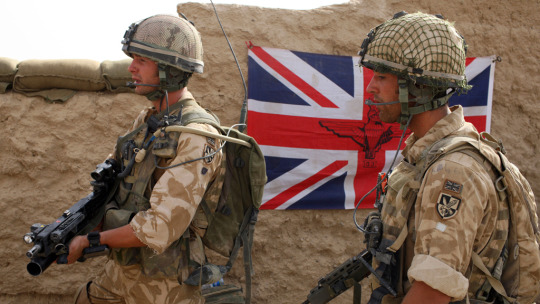
Almost two decades of conflict in Afghanistan has cost British taxpayers £22.2billion, or $31.3 billion according to UK government figures. As British troops prepare to leave Afghanistan, the 20-year deployment bill could be even higher. As of May 2021, the total cost of Operation Herrick (codename for the deployment of British soldiers to Helmand province) is £22.2billion. There were 457 fatalities on, or subsequently due to, Op Herrick. Of which 403 were due to hostile action. During the operation between January 1, 2006 and November 30, 2014, there were 10,382 British service personnel casualties. Of these 5,705 were injuries and the remainder being illness or disease. The UK’s remaining 750 troops in Afghanistan, involved in training local forces, started exiting the war-devastated country in May. Most of them will return home by the end of July.
They, like every one of us who went to fight in Afghanistan, will ask the same questions, ‘Why did we go there?’ ‘What was the real purpose of the mission?’ ‘Was it worth it?’
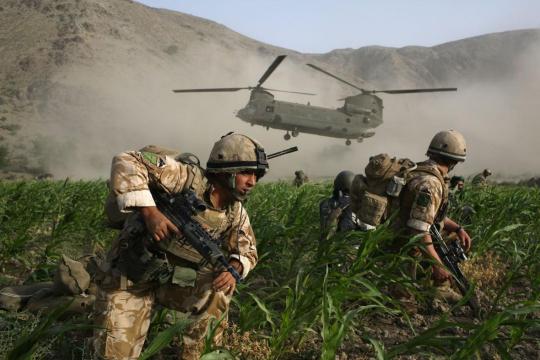
Both my older brothers fought there with special distinction and I later fought there too. I have very mixed emotions when I think about my time in Afghanistan. For all its faults and tortured history, I love that country and love its many ethnic people. I even started to learn Pashtu as I already had a spoken command of Urdu because I had been raised partly in both Pakistan and India and it’s where many Afghan refugees living in the UN camps for over a generation had learned Urdu too.
It’s not just that my family has history in Afghanistan going back to the days of the East India Company but I had a sincere respect for its culture and history as one of the central hot spots for great civilisational achievements, but also as a stubborn and unruly country who proudly defied the Great Powers to bend the knee and turned it into a ‘graveyard of empires’. Most of all I think of the friendships I made there and how my perspective on life changed as a consequence of knowing such resilience and fortitude in the face of catastrophe and death.
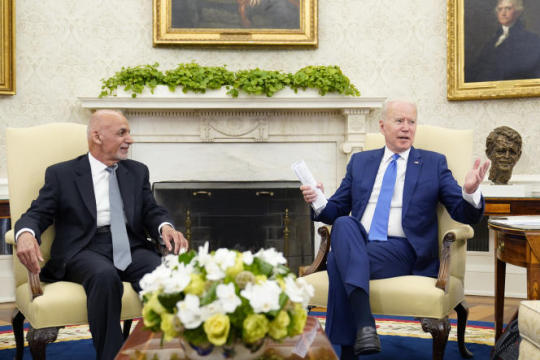
I’m sure like everyone else I wasn’t too surprised by President Biden’s announcement that he was announcing the imminent withdrawal of all American troops in Afghanistan. He wanted to pivot to something else when asked about it. “I want to talk about happy things, man!” He said. Who could begrudge him given that America has been at war in Afghanistan for a better part of 20 years and has nothing to really show for it. Except of course the loss of its brave service men and women as well as the death of thousands of Afghan civilians. It spent more than $2 trillion to kill Osama bin Laden, the architect behind 9/11 attacks and failed to convincingly snuff out both murderous terror groups, Al Qaeda and ISIS.
When the Secretary General of Nato announced back in April 2021 all alliance troops were to be withdrawn from Afghanistan, it was made to look like a nice, clean, enunciation of a joint decision. The end date was set for 11 September, 2021 - 20 years after the terrorist attacks on New York and Washington - and it was in line with the oft-repeated alliance maxim: we went in together; we will come out together. Except that, on closer examination, it was all rather messier.
This was partly because the withdrawal from Afghanistan had actually been Trump’s policy, so here was Joe Biden, the anti-Trump, co-opting a policy from his predecessor (a policy Trump had been so keen on that he tried to accelerate the withdrawal after he lost the election). Biden then tried to detach it from Trump by slowing down the withdrawal date a little and expressing it in terms more comprehensible to the Washington establishment and to US allies.
Where Trump had essentially done a deal with the Taliban and set a withdrawal date of 1 May, Biden left the Taliban out of it and invoked the totemic date of 9/11. This does not mean, of course, that the withdrawal will not be completed a good deal sooner - once you announce a withdrawal, you might as well get on with it.
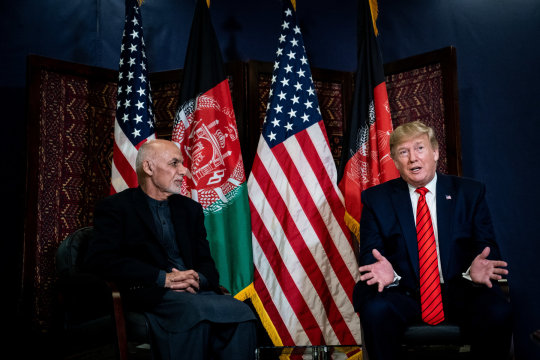
In fact, Biden had to make a decision one way or another, given the rapid approach of Trump’s 1 May withdrawal date. And, whether it came from Washington or Nato, it was pretty low key for an announcement that a 20-year military involvement that had cost 4,000 allied lives was ending. Indeed, many people beyond Washington and Afghanistan might not quite have registered the news, given the considerable noises from Nato’s simultaneous dire warnings about Russia massing troops on the Ukrainian border, the death of the Duke of Edinburgh in the UK, and the Covid pandemic everywhere.
And distractions were needed not just because Biden was implementing a Trump policy. It was also because he was ordering an unconditional withdrawal – which he justified, correctly, by saying that setting preconditions would mean that the troops could be there forever. It was a risk Biden knew all too well, given that Barack Obama had been persuaded by General David Petraeus – against his election pledges and his better judgement – that what Obama really wanted was not a withdrawal, but a ‘surge’ with conditions attached before a withdrawal could take place.
Distractions were also useful for London, where the timing was hardly ideal. Imagine you were in government in London, you had watched the dismal failure of the UK’s Herrick operations in Helmand Province between 2006 and 2014, you knew that your armed forces had suffered 456 deaths in 20 years, with many more severely injured, but you had hung on in there.
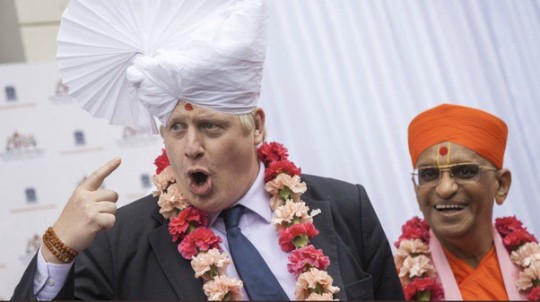
Your government had also just released a blueprint for foreign and security policy, setting future priorities even further from home, in the Indo-Pacific, and your Prime Minister was about to make a high-profile visit to India as part of his post-Brexit ‘Global Britain’ branding . In those circumstances, an announcement that the US had decided to leave Afghanistan, giving you no choice but to follow, was almost exactly what you did not need. Rather than showing the UK as a powerful, autonomous military actor and a valued ally, it showed the exact opposite.
It also reminded an unhappy British public about a costly conflict it had rather forgotten. And those who did more than bother to remember - like the families who lost loved ones on the battlefield - and who over the years have blamed successive governments for moving the goalposts and lacking an exit strategy (all true too).
All of which might explain why the UK’s Foreign and Defence Secretaries followed the US example by changing the subject to the iniquities of Russia and China, rather than issuing a joyous pronouncement to the effect of: hooray and thank goodness, our boys and girls are coming home.
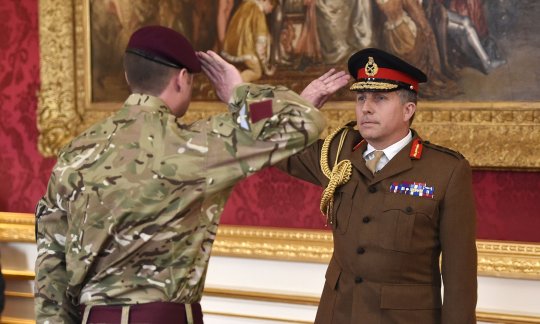
The UK’s Chief of Defence Staff, General Sir Nick Carter gave a subdued, unenthusiastic response to Biden’s announcement. I cannot remember such open acknowledgement of UK-US military policy friction in recent decades - or such an abject admission by the UK of its defence dependence on the US. What Carter said was that the unconditional withdrawal was ‘not a decision we had hoped for, but we obviously respect it and it is clearly an acknowledgement of an evolving US strategic posture’. In other words, the UK had opposed Biden’s decision – or would have done, if asked (which is not clear). Also, that it was Washington’s ‘strategic posture’ that had ‘evolved’, not the UK’s. He suggested there was a real danger that progress made could be lost and that there could be a return to civil war, with the Taliban maybe returning to power - again, all true.
Given that the UK officially has only 750 troops in Afghanistan at present, and most of them are there in a training capacity, to dissent from the US position so openly would be considered decidedly rude in the Ministry of Defence. Perhaps to that end, General Carter played the dutiful soldier and had to - through gritted teeth - put a positive gloss on Afghanistan’s future, insisting that the objective in going into Afghanistan, ‘to prevent international terrorism emerging from the country’, had been achieved which was ‘great tribute to the work of British forces and their allies’.
He also said that Afghan forces were ‘much better trained than one might imagine’ and that the Taliban ‘is not the organisation it once was’, so that ‘a scenario could play out that is actually not quite as bad as perhaps some of the naysayers are predicting.’ Blah blah blah. He’s wrong, and I think he knows it but only in the sanctity of his gentlemen’s club might he truly admit it.
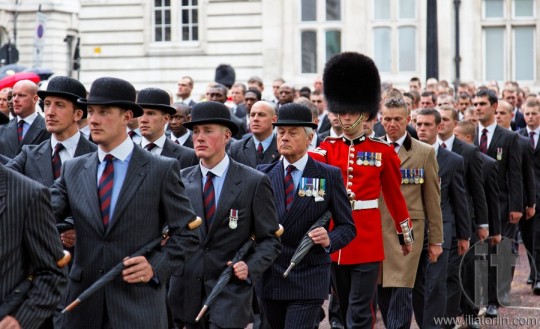
I know he’s wrong because the chatter amongst ex-veterans I know is that we’ve made a balls up of Afghanistan yet again - by ‘again’ I mean from the past 200 years of us Brits trying to bring order to chaos in Afghanistan and getting burned for our troubles.
Both my father and my older siblings tell me what their friends and ex-service peers (some very senior indeed) have been nattering over a drink at their gentlemen clubs where ex-veterans haunt the club bar. Many just shake their heads in sighed resignation before burying themselves in the Times crossword or drowning their sorrows with a beer or two at how lock in step we’ve become to the Americans at a time when the British army is re-branding itself as a more independent nimble hi-tech impact army (the creation of a new ranger regiment being but one example).
Still if President Biden wanted to tie a neat bow on U.S. involvement in Afghanistan - saying, as he had, that the logic for the war ended once al-Qaida was gutted and Osama bin Laden killed - then it reveals a stunning lack of introspection about the United States’ role in the conflict that will continue in Afghanistan long after the last American and British troops leave.
Less than three months after President Joe Biden declared that the last American troops would be out of Afghanistan by September 11th, the withdrawal is nearly complete. The departure from Bagram air base, an hour’s drive north of the capital, Kabul, in effect marked the end of America’s 20-year war. But that does not mean the end of the war in Afghanistan. If anything, it is only going to get worse.
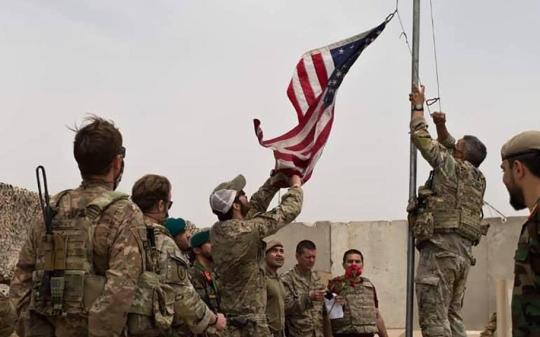
It is true that the president had no good choice on Afghanistan, and that he inherited a bad deal from his predecessor. There are never good choices when it comes to Afghanistan: only bloody trade offs.
But in announcing an unconditional withdrawal, he made the situation worse by throwing out the minimal conditions U.S. Special Envoy Zalmay Khalilzad had negotiated under the Trump administration. U.S. envoy Zalmay Khalilzad has delivered to the Afghan government and Taliban a draft Afghanistan Peace Agreement - the central idea of which is replacing the elected Afghan government with a so-called transitional one that would include the Taliban and then negotiate among its members the future permanent system of government. Crucial blank spaces in the draft include the exact share of power for each of the warring sides and which side would control security institutions.
The refrain now from the Biden administration is that the United States is not abandoning Afghanistan, that it will aim to do right by Afghan women and girls, and that it will try to nudge the Taliban and Kabul toward a peace deal using a diplomatic tool kit.
But the narrative ignores much of the reality on the ground. It also ignores history.
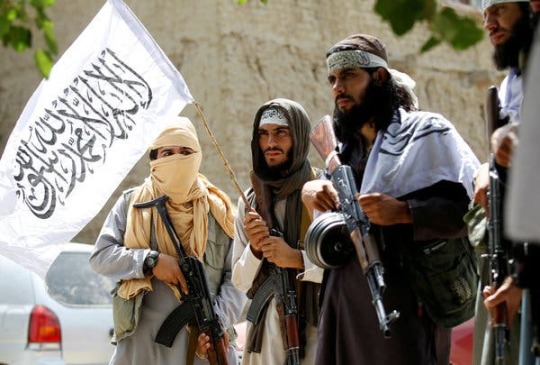
In theory, the Taliban and the American-backed government had been negotiating a peace accord, whereby the insurgents lay down their arms and participate instead in a redesigned political system. In the best-case scenario, strong American support for the government, both financial and military (in the form of continuing air strikes on the Taliban), coupled with immense pressure on the insurgents’ friends, such as Pakistan, might succeed in producing some form of power-sharing agreement.
But even if that were to happen - and the chances are low - it would be a depressing spectacle. The Taliban would insist on moving backwards in the direction of the brutal theocracy they imposed during their previous stint in power, when they confined women to their homes, stopped girls from going to school and meted out harsh punishments for sins such as wearing the wrong clothes or listening to the wrong music.
More likely than any deal, however, is that the Taliban try to use their victories on the battlefield to topple the government by force. They have already overrun much of the countryside, with government units mostly restricted to cities and towns. Demoralised government troops are abandoning their posts. In the first week of July 2021, over 1,000 of them fled from the north-eastern province of Badakhshan to neighbouring Tajikistan. The Taliban have not yet managed to capture and hold any cities, and may lack the manpower to do so in lots of places at once. They may prefer to throttle the government slowly rather than attack it head on. But the momentum is clearly on their side.
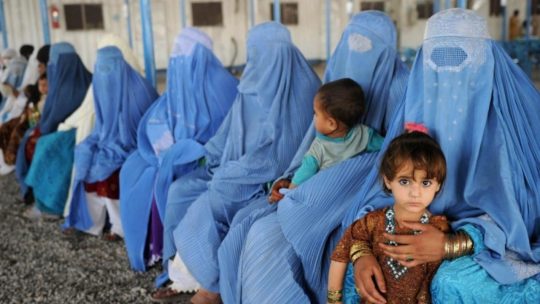
America and its NATO allies have spent billions of dollars training and equipping Afghan security forces in the hope that they would one day be able to stand alone. Instead, they started buckling even before America left. Many districts are being taken not by force, but are simply handed over. Soldiers and policemen have surrendered in droves, leaving piles of American-purchased arms and ammunition and fleets of vehicles. Even as the last American troops were leaving Bagram over the weekend of July 3rd, more than 1,000 Afghan soldiers were busy fleeing across the border into neighbouring Tajikistan as they sought to escape a Taliban assault.
As the outlook for the army and for civilians looks increasingly desperate, so do the measures proposed by the government. Ashraf Ghani, the president, is trying to mobilise militias to shore up the flimsy army. He has turned for help to figures such as Atta Mohammad Noor, who rose to power as an anti-Soviet and anti-Taliban commander and is now a potentate and businessman in Balkh province. “No matter what, we will defend our cities and the dignity of our people,” said Mr Noor in his gilded reception hall in Mazar-i-Sharif, the key to holding the north (sounds like Game of Thrones). The thinking is that such a mobilisation would be a temporary measure to give the army breathing space and allow it to regroup and the new forces would co-ordinate with government troops to push back hard on the Taliban.
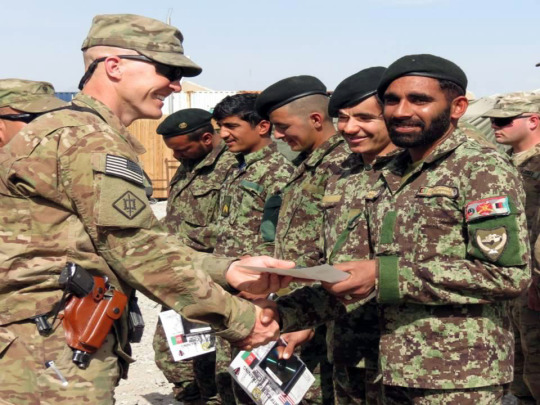
However this is Afghanistan. The prospect of unleashing warlords’ private armies fills many Afghans with dread, reminding them of the anarchy of the 1990s. Such militias, raised along ethnic lines, tended to turn on each other and the general population.
With America gone and Afghan forces melting away, the Taliban fancy their prospects. They show little sign of engaging in serious negotiations with Mr Ghani’s administration. Yet they control no major towns or cities. Sewing up the countryside puts pressure on the urban centres, but the Taliban may be in no hurry to force the issue. They generally lack heavy weapons. They may also lack the numbers to take a city against sustained resistance. On July 7th they failed to capture Qala-e-Naw, a small town. Besides, controlling a city would bring fresh headaches. They are not good at providing government services.
Perhaps the Taliban have learned their history lesson and might refrain from attacking Kabul this time around. Their best course may be to tighten the screws and wait for the government to buckle. American predictions of its fate are getting gloomier. Intelligence agencies think Mr Ghani’s government could collapse within six months, according to the Wall Street Journal. So clearly the momentum is on the side of the Taliban and they just need to chip away at Ghani’s forces one district after another until the inevitable and hateful surrender of the central Afghan government to their demands.
At the very least, the civil war is likely to intensify, as the Taliban press their advantage and the government fights for its life. Other countries - China, India, Iran, Russia and Pakistan - will seek to fill the vacuum left by America. Some will funnel money and weapons to friendly warlords. The result will be yet more bloodshed and destruction, in a country that has suffered constant warfare for more than 40 years. Those who worry about possible reprisals against the locals who worked as translators for the Americans are missing the big picture: America, Britain and other allies are abandoning an entire country of almost 40m people to a grisly fate.

Nothing exemplifies - at least in Afghan eyes - of all that has gone wrong with American involvement in Afghanistan than in the manner of their leaving.
The U.S. left Afghanistan's Bagram Airfield after nearly 20 years by shutting off the electricity and slipping away in the night without notifying the base's new Afghan commander, who discovered the Americans' departure more than two hours after they left in the middle of the night without raising any alarms.
They left behind 3.5 million items, including tens of thousands of bottles of water, energy drinks and military MRE's (Meals Ready to Eat ration packs to the uninitiated). Thousands of civilian vehicles were left, many without keys to start them, and hundreds of armoured vehicles. The Americans also left small weapons and ammunition, but the departing US troops took heavy weapons with them. Ammunition for weapons not left for the Afghan military was blown up.
Now that is some feat considering the logistics of this mass exodus without drawing any attention. You have obviously been to Bagram and so you will know just how big and sprawling it is. Bagram Airfield is the size of a small city, roadways weaving through barracks and past hangar-like buildings. There are two runways and more than 100 parking spots for fighter jets known as revetments. One of the two runways is 12,000 feet long and was built in 2006. There's a passenger lounge, a 50-bed hospital and giant hangar-size tents filled with furniture. And all those shops to remind Americans of home from familiar fast food restaurants and hairdressers and massage parlours to buying clothing and jewellery and buying a Harley Davidson motorbike (or so I’ve been told).
I’m guessing that the Afghans were certainly outside of the wire and probably had not been inside Bagram Airfield for months. So from the outset they would not have had any reason to think anything was going on until the generators probably ran out of fuel and it started to go a little too quiet. The inner gate was probably discretely left unlocked and when the US stopped answering the radio/phone and then they probably investigated.
Before the Afghan army could take control of the airfield about an hour's drive from the Afghan capital, Kabul, it was invaded by a small army of looters, who ransacked barrack after barrack and rummaged through giant storage tents before being evicted, according to Afghan troops. Afghan military leaders insist the Afghan National Security and Defense Force could hold on to the heavily fortified base despite a string of Taliban wins on the battlefield. The airfield includes a prison with about 5,000 prisoners, many of them allegedly Taliban members.
I’m pretty sure some bright spark in the US Pentagon public affairs dept convinced his military superiors that it was important to avoid the optics of Americans leaving in the same way they did in Vietnam in case it depresses the American public and the US military. Instead it demoralised its allies, the Afghan national army who are now the only line of defence against the Taliban. In one night, they lost all the goodwill of 20 years by leaving the way they did, in the night, without telling the Afghan soldiers who were outside patrolling the area. The manner in which the Americans left Bagram air base amounts to a resounding vote of no confidence in Afghanistan’s future. It just looks bad.
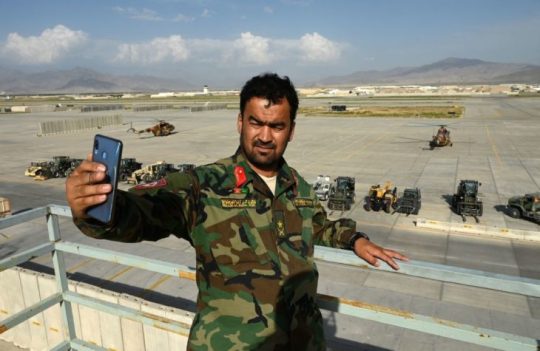
The U.S. choice came with costs attached to each decision. With staying, the cost was potential U.S. troop casualties and a fear that things would not change on the ground. With leaving comes the cost of a deeper conflict in Afghanistan and a backsliding of progress made there over the past two decades. In many ways, the costs of staying seem shorter-term and borne by the United States, while the costs of leaving will be predominantly borne by Afghans over a longer time horizon. Yet, even if those costs seem remote now, history tells us that they will be blamed on the United States.
Biden perhaps reflective of history of Americans getting into quagmires abroad didn’t want to be seen exerting time and energy for a losing cause. His decision also reflects his administration’s foreign policy for the American middle-class paradigm, which focuses on domestic considerations over international ones (and is this so different from Trump’s “America First”? No, it is not). The irony, though, is that the American middle class largely doesn’t care about Afghanistan - their ambivalence gave way to support for this decision once it was announced, but it wouldn’t be hard to visualise the public approving of a scenario that kept a couple thousand troops there for a while longer.
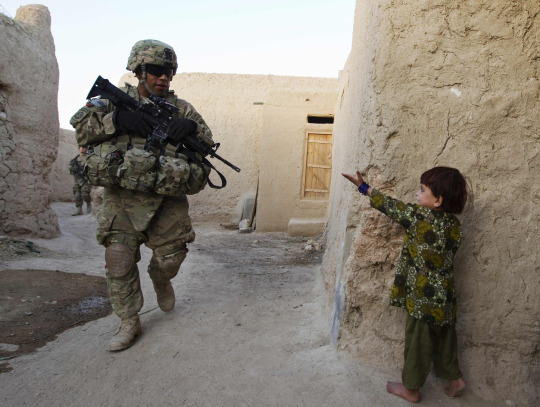
What’s perhaps most disturbing is the narrative the president has presented along with the rationale for withdrawal: that America went to Afghanistan to defeat al-Qaida after 9/11, that mission creep led America to stay on too long and, therefore, it is time to get out. This takes an incomplete view of U.S. agency in the war in Afghanistan. The narrative implies that the civil conflict in Afghanistan today did not originate with America - that this more than 40-year war began with the Soviet invasion of Afghanistan in 1979, preceded America’s interference in Afghanistan, and will follow our departure.
The fact of the matter is that, by beginning the campaign in Afghanistan in 2001 and overthrowing the Taliban, who were then engaged in their draconian rule, and installing a new government, we western allies began a new phase of the Afghan conflict — one that pitted the Kabul government and the United States/Britain/NATO against the Taliban insurgency. The Afghan people did not have a say in the matter. That we allied powers are leaving Afghan women, children, and youth better off in many ways after 20 years is due to us, and we should be proud of that. But that we are leaving them mired in a bloody conflict is also due to us, because we could not hold off the Taliban insurgency, and we must all reckon publicly with that.
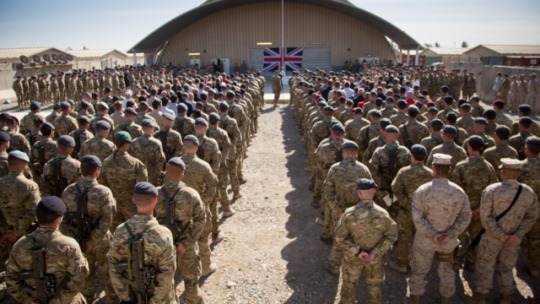
I have to ask myself why did we fail?
I’m only speaking about us Brits now as I’m sure you have your own thoughts as an ex-Marine officer of what you thought of the American military effort. Yes, I’m copping out of really bashing the yanks because first, I have too much respect for those fantastic American service men and women I did have the privilege to fight alongside with; and second, we Brits have nothing to crow about as we fucked up in lots of ways too, and to make things worse, we should have known better given our imperial history with Afghanistan.
The seeds of our failure in Afghanistan lies in not learning from history. We didn’t have a mission that was properly defined nor did we have a strategy that was clear, coherent, and easily communicated to both its fighting men and women as well as to the British public.
Were we there to get our hands bloody and to root out and destroy extreme Islamist terrorists or were we there to indulge in state building out of some idealistic notions of liberal humanitarianism? This question was at heart of our failure within our government and also within the British army as well as our relations with America and our NATO allies and finally the Afghans themselves.
Although never colonised in the same manner as other central and south Asian countries, the modern Afghan state is very much a creation borne out of great power rivalry. A land occupied by a number of different ethnic, linguistic and religious groups, it is a country whose borders were defined by, and whose sense of national identity was forged in response to western great power competition. Its geopolitical position - landlocked, mountainous, and surrounded by past great powers and present regional rivals - lends Afghanistan a dual role of geographic obscurity and great strategic significance, and has as such frequently been treated as little more than a buffer state between empires and a proxy of local powers. Its shared historical border with Russia and British India made it an object of imperial intrigue and, by consequence, has been subject to five European military interventions in the last 175 years.
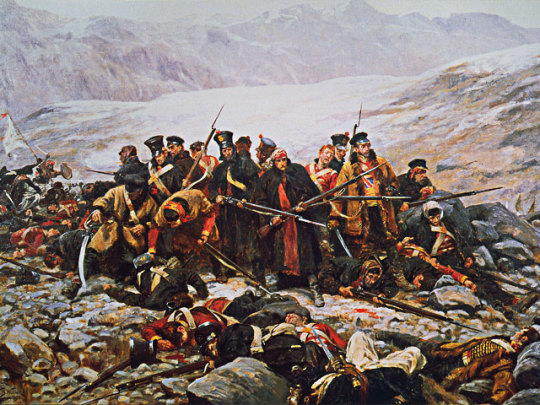
The first three interventions of these occurred during the era of ‘the Great Game’ in the nineteenth and early twentieth centuries, in which Britain and Russia (latterly the Soviet Union) competed for influence and control over Afghan politics in order to protect their respective imperial holdings in India and central Asia.
The fourth and fifth interventions, ranging from the late 1970s to the present day, similarly involved attempts by Soviets and then by an American-led international coalition to remove political leaders acting against their interests and to protect their favoured candidates.
The unifying feature of all these conflicts was the idea of Afghanistan as the site of potential threats to the interests and security of more powerful states.
Britain’s legacy in Afghanistan in particular set the tone for the country’s historical pattern of conflict and political contestation, fuelling both the intermittent emergence of Afghan national consciousness and a fractious political lineage that saw thirteen amirs in just eighty years. Interventions by the Empire during the Great Game set the conditions for the assassination of ostensibly national leaders by their compatriots (Shah Shuja Durrani in the First war) or their exile by the British (Shere Ali Khan and Ayub Khan in the Second).
Despite the British achieving their aim of protecting India in the second and third conflicts by maintaining Afghanistan as either a pro-British buffer state or as a neutral party, the Afghan narrative tends to emphasise successes such as the massacre of British forces retreating from Kabul to Jalalabad in 1842, the defeat of British and Indian forces at Maiwand in 1880, and the gaining of sovereignty in foreign affairs in 1919.
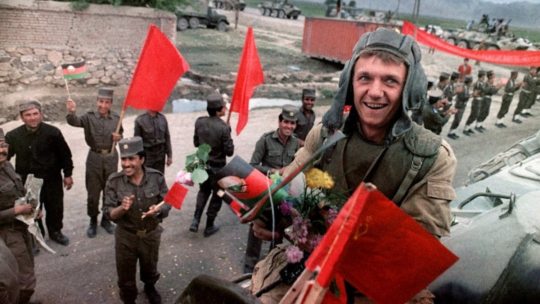
Soviet intervention in the late 1970s and 1980s further buttressed this identity of resistance, and the failure and ultimate overthrow of the Communist-backed Najibullah government, as well as the collapse of the Soviet Union shortly after their drawdown from Afghanistan, led to a sense amongst the victorious mujahidin of the country as the ‘graveyard of empires’.
Afghanistan’s modern history should thus be seen as inextricably linked to the ebbs and flows of great power politics. Each intervention exacerbated extant internal power struggles between rival elite individuals and groups vying for nominal control over the country. Foreign intervention in Afghanistan was met on each occasion with fierce resistance from tribal militias coalesced around religion; as has been remarked upon by one historian of the country, the threat of external domination has been one of the few means of uniting its disparate population around the concept of an Afghan ‘nation’, and in most cases this shared sense of identity cohered around religion, not nationalism.
Indeed, the presence of intervening powers and the development of the Afghan state may be seen as mutually supporting: whilst most Afghan leaders throughout the last two centuries have asserted their sovereignty over the country, the reality has in most circumstances been one of competing tribal chiefs and/or ‘warlords’ rather than a single dominant leader.
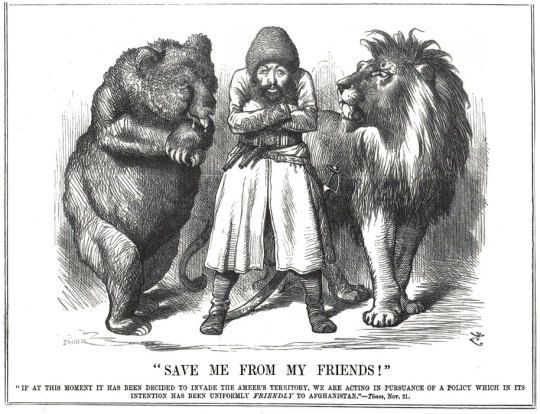
Where leaders have managed to cohere the disparate tribal and ethnic groupings of the country under one banner - most notably under the regime of Dost Mohamed Khan (1826-1839, 1845-1863) – this was due in large part to their diplomatic abilities of compromise and co-optation with Afghanistan’s regional power- brokers. In other cases, such as that of the reign of Abdurrahman (1880- 1901), power was maintained by an unflinching ‘internal imperialism’ and the use of punitive force against rebellious factions.
The challenges of maintaining and projecting centralised power in Afghanistan allow us to see the relationship of its leaders with world or regional powers in the last two centuries as one of mutual exploitation. Throughout the Great Game and the Cold War, whilst the British/Americans and Russians/Soviets would use threats and bribes (and occasionally force) to compel Afghan rulers to comply with their geopolitical needs, Afghan rulers themselves often deftly manipulated those powers to maintain and extend their own power.
The pattern followed by Afghan leaders from the nineteenth century to the present day is remarkably similar in the respect that most have relied upon a rentierist economic model, seeking external aid in order to sustain the cost of security and administration. The plan of modern rulers was to warm Afghanistan with the heat generated by the great power conflicts without getting drawn into them directly. Abdurrahman, for example, used British subsidies to fund his military campaigns against rebellious factions; the Musahiban rulers of the mid-twentieth century used American capital to develop its nascent economic infrastructure and Soviet finance to bolster its armed forces; and, following the overthrow of the last royal leader of Afghanistan, Mohamed Daoud, in 1978, the quasi-communist leadership of Babrak Karmal, Hafizullah Amin, Nur Muhammad Taraki, and Mohammad Najibullah during the late 1970s and 1980s relied in the main on Soviet money and military assistance in its ultimately failed attempt to implement socialist policies and put down the American, Saudi and Pakistani-backed mujahidin.
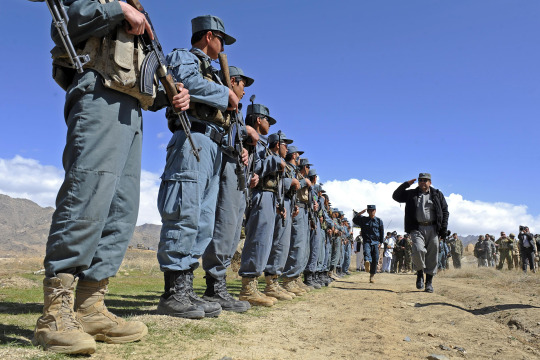
These trends continued into the post-Cold War period in respect to both the Taliban movement (essentially directed and funded by Pakistan), the Northern Alliance (funded largely by former Soviet central Asian states) and the regime of Hamid Karzai (maintained in economic and military terms by the American-led, NATO-operated International Security Assistance Force and the wider international community). In the former cases, occurring in the main in the period of civil war between 1992 and 2001, rentierism was limited to the maintenance of proxy parties and the continuation of conflict.
By contrast, the ISAF mission bore similarities with the Soviet-backed socialist regimes of the 1980s, insofar as it focused huge amounts of capital and military resources on stabilisation and state-building efforts. Both intervening parties made the error of ignoring Afghanistan’s political history and focused their efforts on bolstering the authority of a centralised state, both promoted policies that were deemed ‘universal’ in their application and were, unsurprisingly given such hubris, vulnerable to accusations by Afghan opposition to being alien and imperialistic ideologies, and both expended enormous amounts of blood and treasure in order to sustain the regimes they supported.
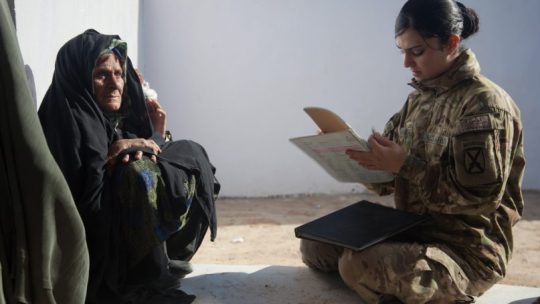
The UK’s struggle to locate a coherent strategy for Afghanistan should, therefore, be seen firstly in the light of the historical problematic of Afghan state-building. This is important in narrative terms because difficulties of defining strategy imply similar challenges in explaining strategy. As with its efforts to ‘think’ strategically, Britain’s ability to explain the strategy(ies) for the war in Afghanistan have been frequently criticised by various commentators. The most strategically debilitating aspect of the Afghan campaign has always been the incoherence of the mission’s purpose; indeed the question ‘‘why are we in Afghanistan?’’ has never really been settled in public consciousness.
The international community massively underestimated the difficulties of state-building and greatly overstretched themselves in the commitments made to Afghanistan, and that they did so because ‘strategies’ for Afghanistan rested on assumptions of the universal applicability of liberal state-building.
The international community from the start (meaning from the Bonn Conference of late 2001) fundamentally misunderstood the nature of an Afghan society deeply ravaged by decades of conflict, and failed to foresee the malign effects state-building ventures would have on the country. Specifically, the Bonn Conference, which set out the parameters of the post-invasion Afghan state, implemented a centralised state system onto a state whose experience of such was limited, and where the success of such a system in extending its authority beyond the major cities was predicated on coercion and the use of force.
Historically this has rarely been a credible option for Afghan rulers or their international backers, and was even less so under the self-imposed restrictions of liberal war-fighting and state-building. Rather, re-creating a centralised state required Afghan and international actors to enter into the same methods of co-optation and compromise as those of the past; in necessitating these kind of measures – as opposed to implementing a looser, federal system of governance – the centralisation of the Afghan state paved the way for a reconstitution of a ruling order based on tribal elements and ‘strongmen’. This produced something of a paradox for state-builders, as the creation of a strong, central state capable of implementing liberal policies across Afghanistan came at the cost of entering into alliances with ‘warlords’ known for their illiberal and coercive political approaches and illicit economic activities.

Another unintended but unavoidable consequence of centralised state-building identified by scholars is the re-constitution of the rentier state in Afghanistan. Post-Bonn, Afghanistan returned to its historical norm of maintaining the state via the extraction of external security and development rents, without which it would almost certainly implode due to the ruinous state of its economy and taxation system. Studies have shown that his new rentierism differed from previous patronage systems at the state level insofar as it was fuelled by an unprecedented influx of capital and resources into the country. This had the effect of introducing regulated systems of ‘neo-patrimonalism’, where departments were to be distributed as rewards to the various factions that took part in the Bonn conference, and there had to be enough rewards to go around.
In other words, the structure of the post-invasion Afghan state was, to a great extent, defined not by the demands of good governance, the needs of the country or the demands of post-conflict stabilisation and reconstruction – the purposes for which the centralised model was chosen to promote – but rather by the first-order need to avoid the derailment of the centralised state by co-opting regional power brokers.
Because of the imperative of shoring up a nascent state by securing support from potential competitors, the gulf between the ends of liberal state-building and the illiberal means required to facilitate its functioning can therefore be seen to a certain extent as inevitable.
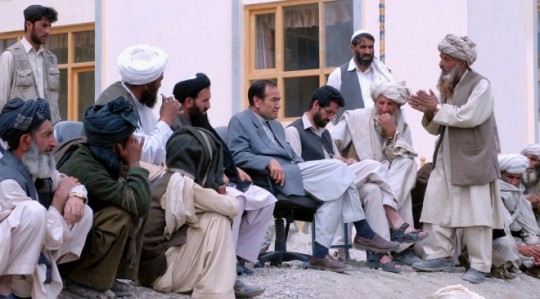
A major issue, however, was that the patrimonial linkages created by the state for its regional proxies was not comprehensive, as it did not extend to the Taliban’s Pashtun heartland and, as such, fuelled resentment and alienation as much as they placated and co- opted extra-state power brokers. Key players in the Northern Alliance - the primarily Tajik opposition to the Taliban - received prestigious posts within the state, whilst the predominantly Pashtun Taliban were themselves excluded from such arrangements. Because those rewarded by the state tended to be given ministerial or governorial roles in cities, the conflict dynamic tended to reflect an urban – rural divide similar to that of the Soviet occupation. Along this reading, the neo-Taliban insurgency was in many ways a product of the political miscalculations and deficiencies of post-invasion state- building activities.
Given this starting point, such a view concludes that the strategic problems encountered by the international community in Afghanistan were, to a large degree, problems created by (or at the very least exacerbated by) the state-builders themselves. They misread Afghan politics in a way that reflected their own philosophical assumptions about the state and society.
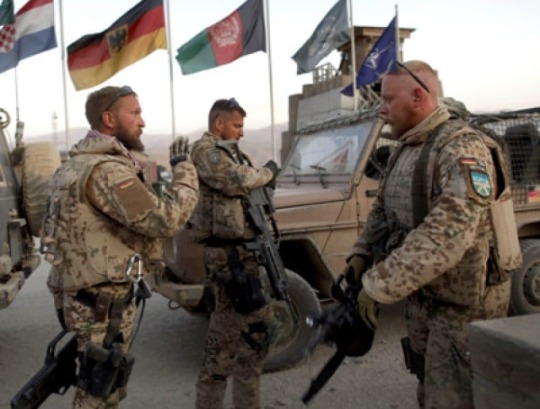
Strategy in Afghanistan suffered because the coalition effort, comprised of multiple national actors and the United Nations, rarely took on the form of a unified effort. Part of the reason for this was a divergence of opinion between actors as to the ultimate purpose – counter-terrorism or state-building – of the intervention.
In the first years of the Afghan campaign, the United States’ Bush Administration remained staunchly opposed to what it called ‘nation building’ and opted instead to pursue a policy of capture- or-kill missions against suspected terrorists. For the United Nations and most of the United States’ European NATO allies, however, state-building was considered a necessary element of any counter-terrorist strategy. This difference of opinion was manifest from the start by the creation of two parallel missions – the US-led, counter-terrorism-focused Operation Enduring Freedom (OEF) and the stabilisation missions of the European Union, United Nations (United Nations Assistance Mission in Afghanistan (UNAMA)) and NATO (International Security Assistance Force (ISAF)) – engaged in seemingly incompatible aims of military prosecution and peace building.
Opinion on the impact of this dual approach varies. Some scholars have noted, along lines similar to those critiquing the state-building efforts of the international community that the approach taken by the UN, EU and ISAF was too ambitious, naïve and unrealistic, and therefore bound to fall short of their liberal political and economic goals. Both Europe and these international agencies ignored the necessity of paring down the international community’s state-building efforts to core, security-centric capacity building within the Afghan National Security Forces. But of course one can make the counter argument, as many have of course, that on the contrary it was the insufficiencies of state-building approaches vis-à-vis OEF’s counter-terrorist approach that led to subsequent failures in UN and ISAF efforts; specifically, that a disproportionate focus on counter-terrorism missions meant that opportunities of peace- building were irreparably compromised.
Within NATO there was a division not just of opinions but also one of mission relating to different political perspectives about the purpose of the Afghan mission and its ultimate referent object – whether it was primarily about the interests of the coalition member states or concerned in the main with Afghanistan itself – and, from that, the methods to be employed in pursuit of one or another objective. This was not merely a debate bounded by strategic necessity, however; rather, such debates stemmed as much from institutional disagreements over who would or could do what in Afghanistan, which in turn arose from the differences in political constitutions and cultural attitudes towards counterinsurgency and counter- terrorism.
These ‘national caveats’ or ‘red cards’ of participation created significant problems for NATO in Afghanistan, both political, in terms of the relations between states and the abiding sense amongst some that others were ‘free-riding’ on the collective security system and, and strategic and operational, in the sense that command-and-control capabilities and cohesion between forces were limited by the engagement restrictions placed on certain armed forces. Indeed, the disproportionate burden placed on combat-oriented states like the United States, the United Kingdom, and several new member states in Eastern Europe led to political statements denouncing Europe’s perceived transgressors of collective security participation; former US Defence Secretary Robert Gates argued, for example, that NATO had effectively become a ‘two-tier alliance’ ‘between members who specialise in ‘soft’ humanitarian, development, peacekeeping and talking tasks and those conducting the ‘hard’ combat missions - between those willing and able to pay the price and bear the burdens of alliance commitments, and those who enjoy the benefits of NATO membership... but don’t want to share the risks and the costs’.
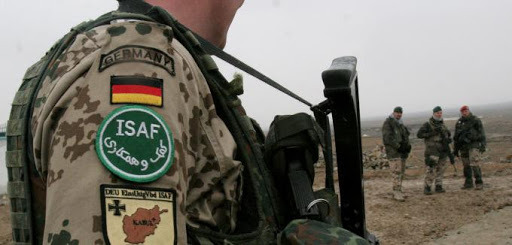
A lack of strategic unity was the natural consequence of a structural compromise that produced two distinct strategic authorities that were, in many ways, competing with one another. Along similar lines to the political arrangements between the Afghan state and its regional proxies, the NATO alliance structure can be seen (and evidently is seen by officials such as Gates) as patrimonial: states participated on the basis of fulfilling their own interests and along operational lines that were complementary to those interests, for the purposes of securing an alliance structure that accommodated all participants ahead of the imperative of creating a coherent strategy for stabilising Afghanistan. As with the neo-patrimonialism of the Karzai regime NATO’s efforts would be dictated by the limitations imposed upon it by circumstance.
Thus, in the cases of Afghanistan’s and the international community’s internal political dynamics, strategy was confined by the structure of the Afghan state and society, the structure of the international community and NATO, and the interplay between those structures. The implication here is that the agency required for the possibility of a workable strategy may have been illusory from the start.
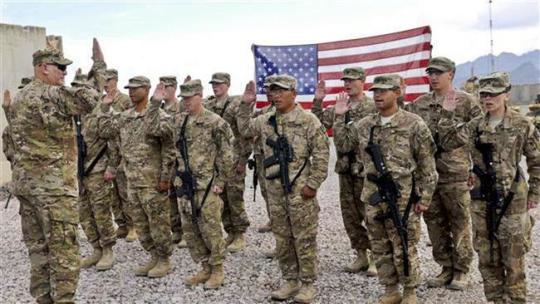
Leaving Afghanistan was never going to be pretty, but the latest turn is uglier than expected.
No one quite expected the speed of collapse within the Afghan National Army to hold of attacks of the Taliban. I don’t think it’s do with the lack of training or their professional skills is lacking (though there may be some truth in it). A big driver in the collapse is the money for wages, food and medical care for troops is syphoned to Dubai, so the Afghans who want to fight, and there are quite a few who hate the Taliban, get less replenishment than the 6th army in the last weeks of Stalingrad. They have arms, ammo and boots for this season only and that is it. Both money and morale are in short supply for these soldiers.
If I was a trained soldier in the Afghan National Army I would desert. I would say to them abandon the fixed defences these ‘ferenghis’ (foreigners) have gifted you and move to the hills and seek refuge with your tribal clan, who will be glad of the arms and experience you bring. Or get over the border if you are lucky to be in the North, if in the West you hire yourself to the Narcos in the badlands on the Iran border. Most other places it is either a last stand or defection, your Government and their relatives have already got their planes fuelled up in Kabul ready to move to their villa complexes in the UAE.
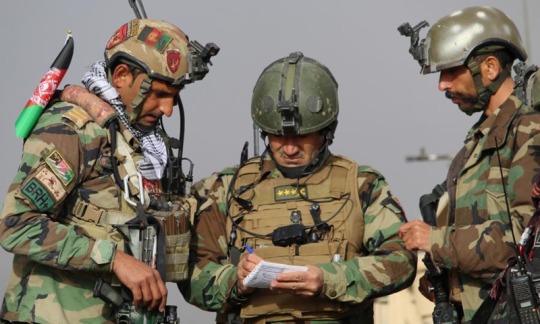
I’m being a trifle cynical but for good reason. Everyone who has been to Afghanistan sees the veil lifted on the corruption of aid and how the elites protect themselves ahead of defending the masses who bear the brunt of the bloodshed.
The corruption has been endemic from the get go, but the international community ignored it all for 'progress'. Any Afghan politico you hear on the media complaining about the West abandoning Afghanistan has at least $30 million parked in Dubai that should have gone to the soldiers, teachers, doctors, builders etc.
As spectacular as the collapse of the Afghan National Army has been it’s been even more scarier seeing how swift the Taliban has been in taking over vital provincial areas through propaganda, civilian intimidation, and rapid attacks. One by one, the Taliban has been taking over areas in a number of provinces in northern Afghanistan in recent weeks. The Taliban says it has taken control of 90 districts across the country since the middle of May. Some were seized without a single shot fired.
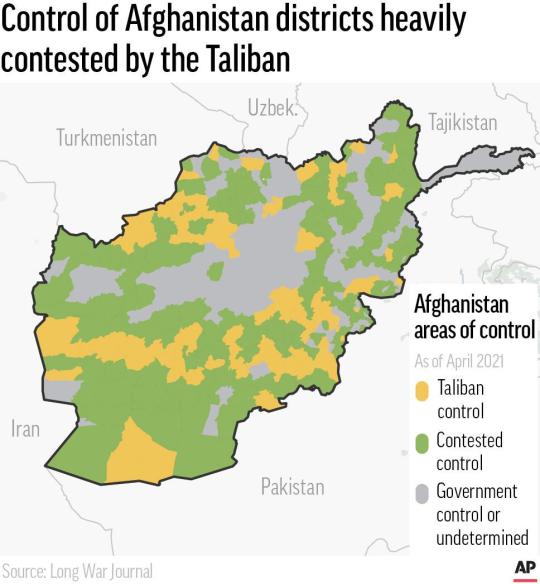
The UN's special envoy on Afghanistan, Deborah Lyon put the figure lower, at 50 out of the nation's 370 districts, but feared the worst was yet to come. Most districts that have been taken surround provincial capitals, suggesting that the Taliban are positioning themselves to try and take these capitals once all foreign forces are fully withdrawn. On a map, it's easy to see the point Lyon is making. A stark example is Mazar-i-Sharif, the biggest city in the north and a significant power centre in its own right. It was the rock upon which the Northern Alliance fought against the Taliban.
It is significant the Taliban are kicking off this offensive in the north, not their heartland in the south and east. The north was the toughest part of the country for them to crack last time. Their expectation is if they have victory there, success will flow much easier in their traditional homelands further south.
The strategy of taming the north extends to emasculating and profiting from trade routes to neighbours. On Monday night they captured the important border town of Shir Khan Bandar, Afghanistan's main crossing into Tajikistan. Earlier in the day, top Tajik government officials had met to discuss concerns about the growing instability next door. There is no indication that the Taliban intend to take their fight north of the border, but in the past Tajikistan has been a vital conduit for supplies flowing to the militants' northern enemies.
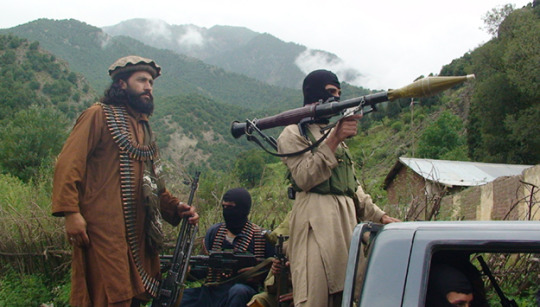
The last time the Taliban controlled the city was 20 years ago, when they left hundreds of captives in steel trucking containers to suffocate and die in the scorching desert heat. Now, the militants are back at the city gates once again, as part of a lightning offensive against Afghan government forces that has set alarm bells ringing from Kabul to Washington. So it should worry us all where will all this lead to.
America's drawdown seems to be the game changer. The Taliban have been beaten back several times in recent years, notably from Kunduz in 2015. The Taliban captured it briefly before US airstrikes were called in. Civilian casualties were high but the militants were driven out. The militant group has never been able to withstand the heavy US and NATO air assaults backing Afghan ground forces, but now the US and NATO are leaving, so is much of the threat of sophisticated and sustained air power. And the Taliban are well aware of this.
It seems to me behind the choice of withdrawal by the Biden government lies a bigger assumption that drives that choice. That is the Taliban militants' perceived desire for international recognition. This has been the mantra underpinning the American exit. The logic of the American argument has been simple: The Taliban wouldn't renege on their agreements with the US because they crave international acceptance. The events of this past week and more appear to blow a hole in that assumption.
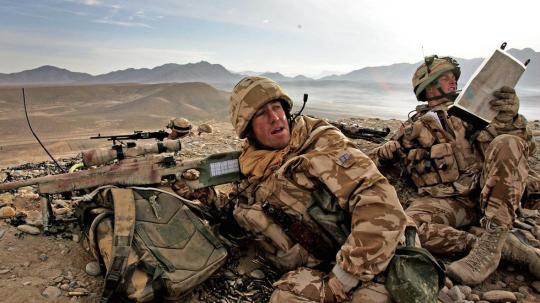
Another assumption that’s currently being blown out of the water is the US establishing some presence outside of Afghanistan so that if it needs to intervene again to combat terrorism or flush out militants then it can do so from the safety of a neighbouring country. But so far no country has come forward to reciprocate. And why would they? Like the Afghans, no one likes foreign troops with boots on the ground in their country. Only the central Asian republics and possibly Pakistan would come close to allowing that but there would be a political cost those governments would pay with their people. Moreover by welcoming the Americans in, they also allow the militants to target that country too.
Another assumption is the nature of the Taliban support and links to terrorist groups. The U.S. may not face any serious post-withdrawal Afghan support of extremist threats to the United States, even if the Taliban does take over. It is all too true that the Taliban continues to talk to the remnants of Al Qaeda, as do elements of the Pakistani military. It is unclear, however, that these remnants of Al Qaeda focus on attacks on the U.S., and the Taliban does seem to oppose ISIS. It is also unclear that the Taliban will host other extremist movements that focus on attacking the U.S. or states outside the region.
It is unclear that any key element of the Taliban has an interest in such attacks on the United States. Even Al Qaeda now focuses largely on objectives inside Islamic countries, and it is unclear that some other major extremist force will emerge in Afghanistan that do not focus on regional threats and on taking over vulnerable, largely Islamic states.
At the same time, one needs to be careful about the assumption that the U.S. can defeat any such threats by launching precision air and missile strikes against extremist targets. It is unclear that the forces in Afghanistan involved in any small covert attacks on the U.S. will be easy to target and cripple if they do emerge. The Taliban is unlikely to tolerate major training camps and facilities for extremist forces, and any such strikes will present major problems for the U.S. if the extremist threat consists of scattered small facilities and small expert cadres that shelter among the Afghan population.
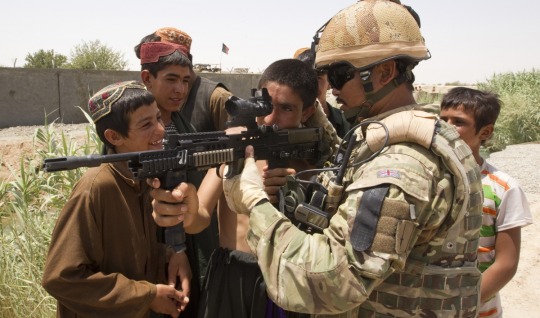
It is also far from clear that more intense U.S. air attacks on Taliban forces from outside Afghanistan will have any decisive effects. The loss of limited numbers of Taliban fighters as well as some key Taliban leaders and facilities will not offset the pace of their victories in the countryside or enable the central government to survive. A continuing U.S. ability to target and kill some key Taliban leaders and fighters also does not mean that the risk of such strikes will deter future Taliban willingness to let small, extremist strike groups conduct well-focused, well-planned strikes on U.S. or allied territory, especially if such groups in Afghanistan sponsor attacks on the U.S. or it strategic partner by strike units or cadres based in other countries.
At the same time, it does seem more likely that the Taliban, and/or any independent extremist groups, will focus largely on Iran, Pakistan, Russia, China, and the other “-Stans.”

Going forward I think we need to re-evaluate many of our assumptions about the war in Afghanistan.
The objectives of the Authorised Use of Military Force approved by the US Congress in 2001 have long been accomplished. Once Osama bin Laden was killed in Operation Neptune Spear in 2011, the last element of the AUMF was met. The American and British mission in Afghanistan was complete. But America and Britain did not leave because we wanted to do a spot of state building to curb the spread of militant islamist terror. That was a mistake as it turned out.
Post-Neptune Spear, The American, the British, and their allies’ conventional mission should have been ended, adopting instead a laser focus on intelligence collection and offensive special operations to prevent al-Qaeda (or any terrorist organisation) from re-establishing safe havens and training areas.
What was needed for an acceptable ‘victory’ and a ‘saving face’ withdrawal was to embrace the use of Afghan Militia Forces the same way the Allies did for our initial entry way back in 2001.
In 2001, Western powers won the initial military engagement in 42 days using special operations forces with local and regional allies - we need to return to this format - and through a combination of special operations and specific information operations efforts, regaining the high ground and influence over ‘centres of gravity’. The issue is not the number of troops, but the mission of the forces there. Once the mission is defined, the number of forces needed would be clear.
It has never been about the number of troops - it’s been about the lack of an achievable mission assigned to our forces in Afghanistan.
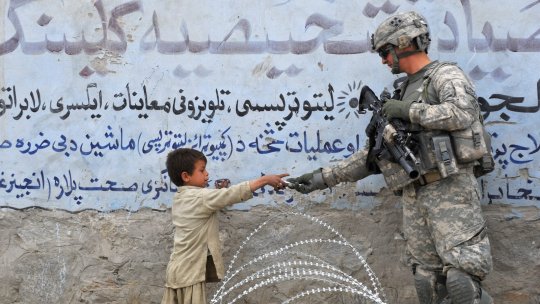
The US engaged in ‘nation-building’ for the wrong reasons - and has seen bad results. We installed Hamid Karzai, served as his praetorian guard to protect the new central government and abandon our AMF allies and attempted to build a large, bulky, expensive and ineffective Afghan National Army - a force that is now evaporating before our eyes. It was folly.
Americans will never make the Afghan people more like them - nor will they be able to instil what my American colleagues used to fondly refer to as ‘a Jeffersonian democracy’ in Afghanistan. That day may come but only when the Afghan people wish it to be so. Lest it be forgotten Americans sought independence in 1776; the Afghan people seek self-reliance and independence from foreign influence. This is their defining historical DNA: escape from any outside control.
The Afghan people are not ungoverned, they are self-governed - with no tradition of central democracy and no desire for our version of democracy or ‘prosperity’. By pushing ‘prosperity’ we had become targets for both the Afghan government and the Taliban. This has ended, but we must draw a distinction between the end of nation-building and the continuation of our own interests in Afghanistan and the region.
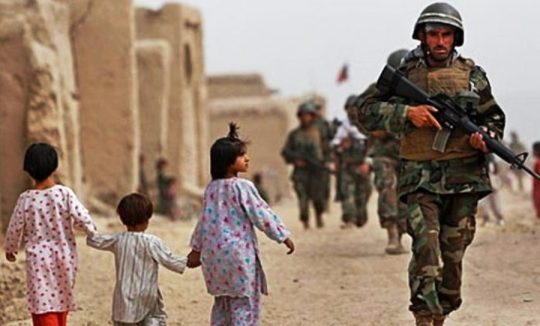
It is time to adopt a practical policy based on what will work and is in our allied interests, rather than by funding the aspirations of progressive politicians who have no real understanding of Afghanistan.
First, we must establish a clear post-‘state-building’ strategy - with achievable objectives. We must return to the policy and operational format we know will work - cooperation with Afghan tribal leaders and militia. This type of force was used to achieve the initial victory in 2001. Empowered warlords and regional leaders were the force multiplier that worked as the Afghan Militia Forces - and can again, in partnership with our Special Operations Forces work now. Intelligence collection and limited military operations should be our focus.
There is no way around it. One has to play the Great Game. Think tribal rather than central. Afghan nationhood is a liberal Western wet dream.
The central government is weak and corrupt just like all the other rulers of the past. The Afghan National Army is not as strong as it is on paper. It can hardly prop itself up rather than any government. Most of the Afghan National Army troops have stronger tribal loyalties than to the concept of a nation. Since the tribal chiefs play both sides to hedge their bets, it's no wonder 'their' people do what they're told. The Taliban know this because that has always been the Afghan way, so the tribes go with them. Provided the Taliban honour their promises to the tribal chiefs, the Taliban can do what they want.
On one hand, the tribes won't now be too bothered by central government and have a large pool of Western-trained troops to prop them up. On the other hand, they now have to do business formally with the Taliban again. Largely in order to get their hands on Western-supplied aid that will surely follow after the Americans leave.
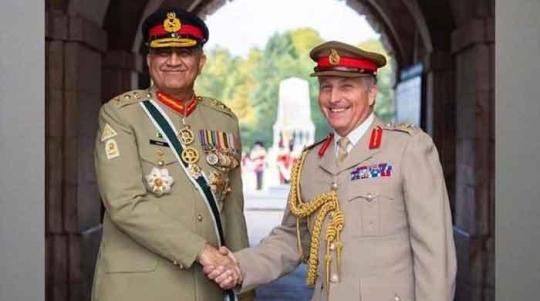
Second, we must accept the reality of Pakistani influence in Afghanistan - and work with the Pakistanis to counter al-Qaeda and the other militants now attacking Pakistani targets within Pakistan. Pakistan has made great advances in securing the tribal areas on the other side of the border and they have always been the de facto control of much of the Taliban force capacity, such as the Haqqani network. Working with Pakistan is the best option within the current circumstance.
‘Endless wars’ are not an American value. The use of the US military must only be used in response to genuine threats, when American interests are at stake or lives in danger. Withdrawal of conventional military forces and discontinuing nation building is in the US interest: leaving Afghanistan is not.
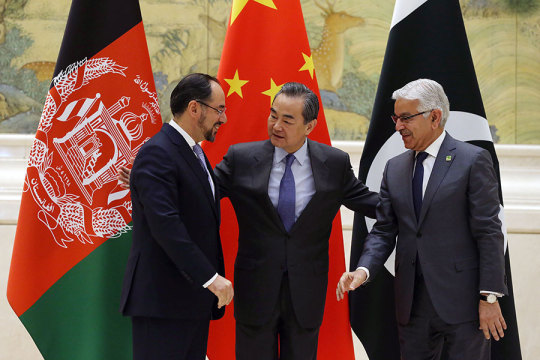
Third, make Afghanistan China’s problem. Afghanistan could easily become a hotbed for growing Islamic extremism, which would to some extent affect stability in Xinjiang.
It is not without reason that Afghanistan is known as the “graveyard of empires”. The ancient Greeks, the Mongols, the Mughals, the British, the Soviet Union and most recently the US have all launched vainglorious invasions that saw their ambitions and the blood of their soldiers drain into the sand. But after each imperial retreat, a new tournament of shadows begins. With the US pulling out of Afghanistan, China is casting an anxious gaze towards its western frontier and pursuing talks with an ascendant Taliban. The burning questions are not only whether the Taliban can fill the power vacuum created by the US withdrawal but also whether China - despite its longstanding policy of “non-interference” - may become the next superpower to try to write a chapter in Afghanistan’s history.
Beijing has held talks with the Taliban and although details of the discussions have been kept secret, government officials, diplomats and analysts from Afghanistan, India, China and the US said that crucial aspects of a broad strategy were taking shape. An Indian government official said China’s approach was to try to rebuild Afghanistan’s shattered infrastructure in co-operation with the Taliban by channelling funds through Pakistan, one of Beijing’s firmest allies in the region. China is Pakistan’s wallet.
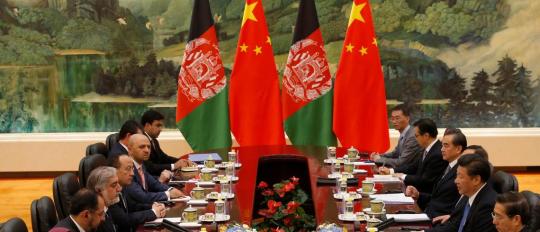
It has been reported that Beijing has been insisting that the Taliban limit its ties with groups that it said were made up of Uyghur terrorists in return for such support. The groups, which Beijing refers to as the East Turkestan Islamic Movement, are an essential part of China’s security calculus in the region. The ETIM groups were estimated by the UN Security Council last year to number up to 3,500 fighters, some of whom were based in a part of Afghanistan that borders China. Both the UN and the US designated the ETIM as terrorists in 2002 but Washington dropped its classification last year. China has accused the ETIM of carrying out multiple acts of terrorism in Xinjiang, its north-western frontier region, where Beijing has kept an estimated 1m Uyghur and other minority peoples in internment camps.
In a clear indication of Beijing’s determination to counter the ETIM, Wang Yi, China’s foreign minister, exhorted counterparts from the central Asian states of Kazakhstan, Uzbekistan, Kyrgyzstan, Tajikistan and Turkmenistan this year to co-operate to smash the group. “We should resolutely crack down on the ‘three evil forces’ [of extremism, terrorism and separatism] including the East Turkestan Islamic Movement,” Wang said in May according to Chinese news media which I follow.
The importance of this task derived in part from the need to protect large-scale activities and projects to create a safe Silk Road. Silk Road is one of the terms that Chinese officials use to refer to the Belt and Road Initiative, the signature foreign policy strategy of President Xi Jinping to build infrastructure and win influence overseas.
An important part of China’s motivation in seeking stability in Afghanistan is protecting existing BRI projects in Pakistan and the central Asian states while potentially opening Afghanistan to future investments. China would have to more actively support efforts to ensure political stability in Afghanistan. So make them work for it. Western powers need to leverage China’s problems in Xinjiang to be more active in Afghanistan.
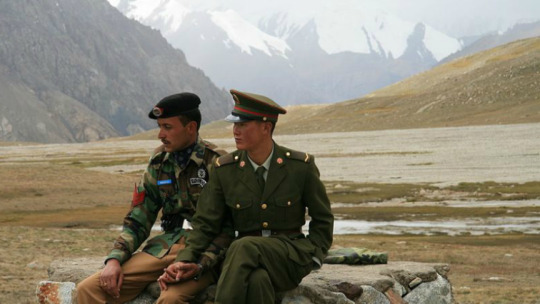
International media outlets and intelligence agencies worldwide have been circulating reports pointing toward the creation of a Chinese military base in the Wakhan Corridor of Afghanistan’s Badakhshan province for a while now. Although China has not embarked on militarisation programs on foreign soil historically, and has profusely denied the rumours about building an Afghan “mountain brigade,” China’s first overseas military base in Djibouti provides an example of China’s newly adopted strategy of leveraging economic influence to further its strategic objectives. There’s even some chatter amongst Chinese officials that Beijing may entertain the idea of being part of a future UN international force should one be needed in Afghanistan (a bad idea but hey, let China find out first hand for itself).
The Afghan government was able to maintain a measure of stability largely because of the superiority of US air support. The drones, gunships, helicopters and heavy air artillery were unmatched by the Taliban. But when the US leaves, that advantage will evaporate. China’s imperative to create overland trade routes to Europe and the Middle East may draw it inevitably into Afghanistan’s domestic strife.
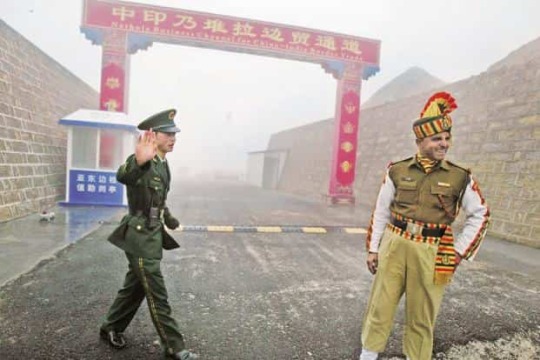
Of course China’s forward policy in the Wakhan Corridor needs to be assessed with a critical eye. Although on one level it seems to be motivated primarily by the threat of radicalisation, China’s interest in the region is also contingent on the strategic role that Afghanistan is capable of playing in the larger scheme of things. Despite China’s vehement denial, there seems to be sufficient evidence available indicating a definite military build up in the region, which provides China with an opportunity to showcase its ability to transform into a balancing force in the regional dynamics. I think that is a trade off that both America and Europe can afford to concede under the current circumstances.
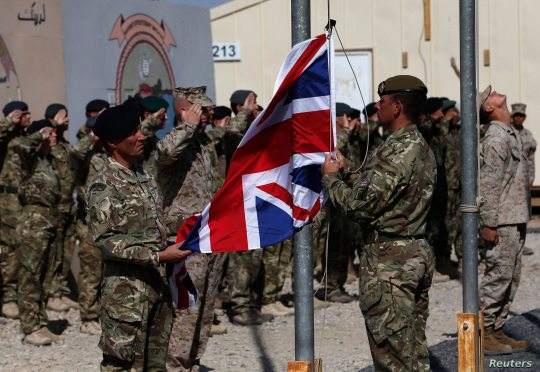
In conclusion In the face of failure, there is an impulse to move on and not ask “what led to this?” But to avoid a reckoning with our follies is to risk their repetition, or worse.
it is probably too late to salvage either the civil or military situation in Afghanistan. It almost certainly is too late to salvage it with limited in-country U.S. forces, outside U.S. airpower and intelligence assets, and with no real peace agreement or functional peace process. Limited military measures are not the answer, and neither is simply reinforcing the past processes of failure. Tragic as it may be, withdrawal may not solve anything and may well make conditions worse for millions of Afghans, but reinforcing failure is not a meaningful strategy.
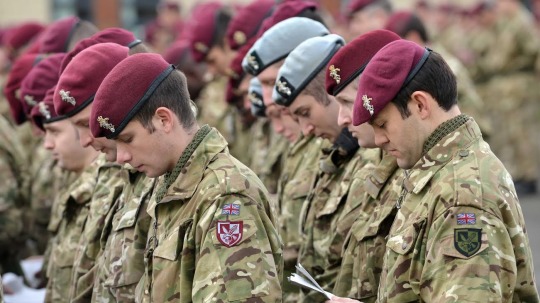
I do feel strongly that both the American and British governments must establish a clear path of redemption so that those who served and the families who sacrificed loved ones know that their loss was not wasted. At the same time our civilian governments must limit missions to intelligence collection and counter-terrorism missions that will prevent the metastasis of al-Qaeda or Isis in the region should the Afghan government fall. How we balance these two is going to be very interesting to follow in the next chapter in Afghanistan’s tortured history.
I apologise for the length of this post. This has been a hard post to write because of the subject matter and the many conflicted emotions and memories I have of my time in Afghanistan. I wish I had all the answers but I suppose the beginning of wisdom would be to know how to ask the right questions. Because we didn’t ask the right questions when we went in, we ended up making a real mess of it.
There is an understandable desire to bring all our allied troops home safe and that not another life is lost there. Yet I doubt this policy of withdrawing all troops will bring peace to anyone, not to us and most of all, the Afghanis themselves. As always in war it is the native population that will bear the real cost of war, in this case women, girls, and others brutalised under Taliban rule. What lies for them if the Taliban regain power to govern the country in their image is something I care not to imagine but retain a deep foreboding of their continued suffering. Ordinary Afghanis just want a respite from war and have a chance to live in peace, but without having us foreigners or the Taliban around. It is hard to imagine that happening at all. Our desire to save our soldiers’ lives set against ordinary Afghanis being left at the mercy of the Taliban is one of those humbling and brutalising trade offs that any war can only offer.
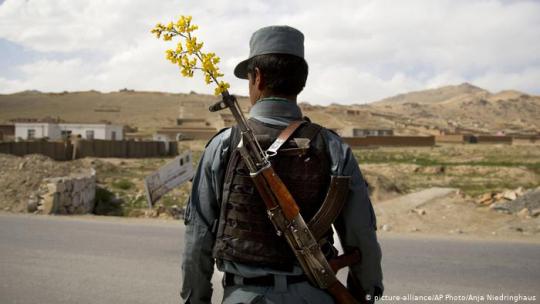
Near the end of his famed novel, The Great Gatsby, F. Scott Fitzgerald described two of his privileged characters, Tom and Daisy, as “careless people” who “smashed up things and creatures” and then “retreated back into their money or their vast carelessness” to “let other people clean up the mess they had made.”
That description applies to America as a whole but also to we Brits and other Europeans, especially when we tire of a misguided war. Americans and we Brits are a careless people. In both Iraq and Afghanistan, we smashed up things and human beings with abandon, only to retreat into our materialism. No scratch that, returning soldiers retreated into themselves struggling with PTSD whilst the rest of our citizenry carried on with their own material struggles and their insipid culture wars. The point is we always leave others to clean up the mess in a very bloody fashion that never troubles our conscience.
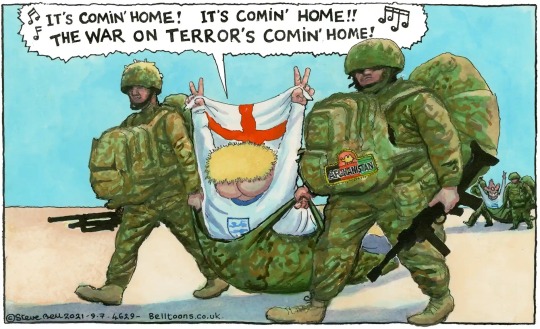
Count on us, probably sooner rather than later, doing precisely the same thing in Afghanistan. Again.
Thanks for your question
#question#ask#afghanistan#war#terrorism#warfare#history#america#britain#taliban#pakistan#china#south asia#security#intelligence#europe#un#isaf#nation building#politics#power#military#personal
163 notes
·
View notes
Text
Cap-Ironman RecWeek: What-If Wednesday
Time for another installment of @cap-ironman rec week! Today’s theme: AU’s.
I know AU’s in different settings are half the reason most people read fanfics, but they’re not really my thing on the whole. AU’s where different choices are made, or different events transpire? Absolutely. Coffee shops? Not my cup of... you know.
So, here’s my AU recommendations for mostly “turn left” scenarios. This time with an under-the-cut break so I don’t take over everyone’s timelines (sorry about that last post). Also with some summaries truncated for length.
Alone Like This
Author: GotTheSilver
Word Count: 7,452
Summary: Steve, post waking up, runs away from SHIELD, and Tony's the one who tracks him down.
Why You Should Read It:
First off, GotTheSilver’s been consistently and regularly putting out solid Stony since 2012 and not only are they not stopping, they’re only getting better. This writer doesn’t get nearly the fanfare I’d expect in Stony circles for someone who puts out this much good stuff, and here’s hoping this post can be a part of changing that.
While I am always a sucker for enemies-to-friends-to-lovers, there’s something to be said for stories where Steve and Tony hit it off right away. And watching these two very different people look at each other and see the same sense of being lost, then finding each other again is... excuse me, there’s something in my eye, ignore me.
Second Chance Lives
Author: raeldaza
Word Count: 43,872
Summary: Tony's gonna die of palladium poisoning anyway, why not join a pointless expedition to recover Captain America’s body? And after, well, why not dedicate his last few months to making sure an American hero settles into his new life? What else is he going to do, get drunk at parties?
Why You Should Read It:
This writer doesn’t write a lot for the MCU but when they do, dang.
“Tony is the one helping Steve acclimate to the new century before Avengers 2012″ is a whole genre of Stony fanfics that scratch an itch I didn’t even know I had before I started reading fanfiction, and this is one of the best ones out there. It’s got it all - Steve poorly coping with his PTSD, Tony poorly coping with his immanent mortality, some breathtakingly poor communication between the two most emotionally stunted men in the MCU, and a cat named Roomba. What’s not to love?
Should You Choose to Accept It
Author: elwenyere (look, you’re gonna be seeing a lot of them this week, sorry-not-sorry)
Word Count: 27,106
Summary: After a terrorist attack and a field operation gone wrong, the Avengers realize that Nick Fury's secrets are just the start of a much bigger mystery. Steve and Tony try to keep some things from each other as well, but that can't possibly affect the mission — right? Mission Fic + Getting Together (or Mission: Getting Together) that mashes up elements from Iron Man 3, CA: Winter Soldier, Agents of S.H.I.E.L.D. season one, and Mission Impossible 3.
Why You Should Read It:
You can see my post yesterday for singing El’s praises, but what I really liked about this fic was how how damn creative it is. The CAWS/IM3/AOS mashup is everything I wished the actual MCU gave us and more, with well-developed characters and an exciting story to put them in. And because it’s El, you know the banter’s gonna be on point, the way the characters care for each other is gonna be emotionally constipated but touching, and the pacing’s gonna be exciting enough to draw you in and keep you there. Also, this fic doesn’t have nearly enough kudos so please go read it and fix that or I’m gonna have to try to hack AO3 and that’ll just be embarrassing for all parties involved.
What Happens In Vegas
Author: sabremc
Word Count: 161,951
Summary: “What the hell, Tony?” Rhodey demanded brusquely. Tony winced and drew the phone away from his ear. “You’ve got cops and Feds all over the hotel. I’m watching you perp walk out of the police station on repeat on CNN. They’re saying you tried to bribe Stern? Fox News has you selling weapons on the black market, and God that picture they’re using is the one from Bali in ’09. You look like shit. They wheeled Stern out and put him in an ambulance, by the way. Got some paparazzi swearing you decked the guy. Now they’ve got ‘copters following it like he’s OJ.”
“Yeah, don’t worry, Sourpatch, I’ve got it covered. Uh, though, I should probably tell you that, purely in the interests of national security and the greater good, I kind of had to fake marry that stripper-gram you sent. Thanks for that, by the way,” Tony added quickly.
Why You Should Read It:
If you’re deep enough into Stony to see posts like this on Tumblr, you probably know sabre’s what we in the business call a “big name author.” They’re prolific, they’re popular, and most importantly, they write words good (technical term). Seriously, sabre just keeps cranking out high quality stuff over and over again, raising the bar for the rest of us like a jerk (not really. I’m not bitter they write stuff so good I wish I’d thought of it first. Not at all.)
I never read stripper!Steve or stripper!Tony as a rule, but this came so widely recommended that I broke that rule and boy am I glad that I did. This is also the only fic on this list that’s a true-AU, with Steve being a non-powered vet from Afghanistan who left his army career to help Bucky and is stripping in Vegas to raise money for a prosthetic arm. He’s booked to do a private show for Tony, shenanigans ensue, and now they’re fake-married. This fic’s got some top-of-the-line banter and character development, but I particularly love it for its rich setting. Sabre paints a Vegas not just with strip clubs and blackjack tables, but KISS-themed minigolf, romantic dinners on the Eiffel tower, gaudy hotel lobbies, and making out on giant ferris wheels. It’s such a richly developed playground for the characters to play on, and through it, Steve manages to find a life for himself he’d given up on, and Tony finds multiple ways to show his kindness and depth of feeling for Steve. I know the word count’s long for this one but trust me, you’ve gotta read this fic.
Wait & Sea
Author: Lenalena
Word Count: 53,244
Summary: In which Tony and Steve get sent on an undercover mission aboard a cruise ship to make contact with Hydra. In this AU the military has kept the discovery and defrosting of Captain America a secret, so Steve and Tony have never met before. Yet they are to pose as newlyweds....
Why You Should Read It:
This one’s old and popular enough to be considered one of the “classic” Stony fics, and for good reason. Lenalena doesn’t write too often and not as much as they used to, but the fics they have up there are an absolute delight.
This is another fic that I skipped a bunch of times for being outside my comfort zone, but when I finally read it I saw why everyone’s so wild about it. In this story, Steve’s defrosted a bit earlier and not revealed as Captain America. He and Tony are sent undercover to sniff out Hydra shenanigans on a cruise and, because it’s fanfiction, they’ve got to pretend to be a married couple while onboard. There’s tons to love about this fic, but the things that bring me back to reading it over and over is first, Tony’s kindness and the way he’s attuned to Steve’s feelings, which... God, just inject “kind, observant Tony” straight into my veins, please and thank you. This is also another really rich setting for a story, and Lena knows how to fold the the hokeyness of the cruise into the seriousness of the mission and the depth of feelings Steve and Tony are finding for each other in a really beautiful, layered way. It’s funny, it’s heartfelt, it’s steamy, it’s gripping... why are you still reading this here? Go check it out for yourself!
Ashes to Ashes
Author: dirigibleplumbing
Word Count: 51,582
Summary: After regrouping following some surprise time travel, the world's heroes and sorcerers come up with a plan to protect the Mind and Time Stones by taking them into space in opposite directions. The result involves a lot more time loops than Steve would like, but at least they're getting a second chance to stop Thanos. (As well as a third, and a fourth...) And if Steve takes the opportunity to try to reconcile with Tony, too—well, they have the time, and Steve's going to make the most of it.
Why You Should Read It:
Dirigibleplumbing’s another name in Stony fanfics that does not get nearly as much fanfare as they deserve. They’re consistently a really creative voice in Stony fanfics and I always look forward to their stories showing me something new. Go read all their fics, I need more people to geek out with me over them.
I tend to limit myself on Steve-and-Tony-mend-things-after-Civil-War fics not because they’re not good, but because they’re so heavy, and also the Sokovia Accords have five hundred layers of crap in them that no good fic could possibly hash out well. This one, though? When you add in the Infinity War/End Game fixit? Poetry. Art. Music to my ears. DP wrote a really engaging, twisty story where it’s hard to predict what’s coming next, in spite of it literally being a pseudo-Groundhog day scenario. The characterizations are great, the story is engaging, and the feelings are big and sad and eventually happy. Go read it, you’ll love it.
I have tons of other recs for this category but this seems like a good place to stop for today. Tomorrow’s Alternative Media Thursday, and I’ve got some real gems I’ve been saving for that day (aaaaand possibly a self-rec or two ;)
71 notes
·
View notes
Text
Episode 6 of What If...? had one thing down pretty well.
Tony, even without his eyes being opened in Afghanistan, wasn’t a villain. He was called it once, but by the person who lied and lied and lied to get what they wanted. A person who fooled Tony, just like Obadiah did all this time. While the voice of objectivity, the Watcher, told us he may not be a hero, but he wasn’t a villain.
Yes, Tony didn’t change. Yes, Tony didn’t stop making weapons, but it was all part of Eric’s plan. He wanted Tony to not change. He wanted him as gullible and naive as he was at the time. Exposing Obadiah without a fateful showdown between Iron Monger and Iron Man, with Eric at Tony’s side was reaffirming to Tony that even though someone like Obadiah betrayed him, there will be always people, strangers, like Eric he can trust, so he didn’t go all full trust issues. And he only opened his eyes, just a little, when Eric attacked Tony’s friend. Because even without becoming a hero, Tony cared about his friends very much. Losing Rhodey made him instantly flip, become suspicious. Something was wrong.
It’s not surprising, though, that it took Rhodey’s death to make him.
He was conditioned to never doubt by Howard and then Obadiah since he was a kid, so of course he trusted Eric. It was predictable that Killmonger will be successful in fooling him until he did something like this. It was too little too late however for Tony to start doubting the guy. Without Iron Man, Tony didn’t have the same chances to survive. His battle with Killmonger was set in stone.
The drone, despite being powered by Jarvis, was not enough.
It was already too late to stop Eric from winning this.
I am honestly saddened so frigging much. Tony died 3 times already in What If...? and I feel as if the show wanted to rub the sadness in at this point. Zombie one was the worst. SHIELD one was at least based on tie-in comics, despite the fact it turned out to be a murder mystery anyway. This one was just sad. First we lost T’Challa, then Rhodey, and then Tony, simply because Eric needed it.
During the battle, I kind of wished for Jarvis to reveal that he wasn’t actually wiped out, that he had everything stored on his servers still, and just played along, and reveal it to Wakanda, that Eric killed their Prince, and then he murdered his badass uncle Rhodey, and then Jarvis’ creator = his father and that he just, like Eric, has a right to avenge his creator. That would be a poetic cinema. Ironic if he won.
I don’t dislike the fact that Shuri and Pepper met, and that Watcher called them heroes, but honestly I really wished for Jarvis to be more present here. To be hurt. To not be just a machine but a kid who lost his parent, because Eric was a scheming backstabbing liar and murderer, and Jarvis couldn’t protect Tony from him with the tools at his disposal. If there were some defense systems in the workshop or Iron Man armors, he would be able to, but he wasn’t.
I am suffering. Please stop killing Tony :/
[BTW, I don’t dislike Killmonger as a character, but the fact that he has a very good reason to be who he is and do what he does doesn’t change the fact that he is a backstabbing liar and that Marvel always portrays people fighting for freedom or equal rights as villains. Ask Magneto if you don’t believe me. Or any other activist-fighting-for-justice-turned-villain, because America sucks.]
35 notes
·
View notes
Note
Apart from royal watching, my other passion is politics. And i really get into policy weeds. But then my entire family participates in politics too, at all levels so i have become somewhat desensitised to the real world effect of political decisions though i can usually predict accurately the consequences so apologies if my factual retorts are triggering you. I say this that i'm not surprised that this happened, but i am surprised it happened in Afghanistan. I thought Syria would fall faster1/2
2/2 Why Syria? Because Biden signed an executive order reversing Trump policy on Syria within the first hour and some 3000 US troops were rolling into Syria by the end of that inaguration day. Obama once said about Biden that we should never underestimate his ability to screw up, but the more alarming observation was from Secretary of Defence in the Obama administration who said Biden had been wrong about every Foreign Policy decision Biden had supported for 40yrs.
====
.
18 notes
·
View notes
Text
I’m bored so here’s some Lev Kravchenko thoughts/headcanons I had:
•In terms of Kravchenko’s family, we know he has a sister, Irina, but there’s no mention of parents: the earliest record of activity from him asides from birth (20 Mar. 1922) is his apprenticeship under Nikita Dragovich. Given that Kravchenko is rumoured to have murdered his sister when she made romantic moves towards Dragovich, it’s assumed he didn’t have a close relationship with her.
•Speaking of Dragovich, Kravchenko serves him with unquestionable loyalty. Knowing that he wasn’t close to his sister, it’s possible that he also wasn’t close to his parents, leaving him rather starved of attention as a child. This could be because he was a violent child, given his nature when he’s older, or his brutality came as a result of his parents because that’s what got him attention (he might also have just fallen into the wrong crowd). With Dragovich being possibly the first person to ever give him positive praise, Kravchenko latched on to Dragovich, becoming blindly loyal.
•Amusingly, Kravchenko and Alex Mason mirror each other to some extent. Both have tempers that need someone reigning them back. Both need a superior who will excuse their violent and morally grey choices. Though it’s hard to exactly compare Mason to Kravchenko given Mason’s condition, the roles of Dragovich and Jason Hudson in Kravchenko and Mason’s life respectively make BO1 even more entertaining, in my opinion.
•The wiki considers Kravchenko a sadist, which is the only thing he’s ever shown in the games. He even enjoys torturing his own workers, as seen with Dr. Peck in BOCWZ. Given his childhood and the possibility that he was a violent kid, physical abuse may be his only way of showing his emotions.
•That being said, Kravchenko does show a slight softer side, particularly towards Dimitri Belikov. If Belikov gives him false information framing General Anton Charkov, Kravchenko will act rather friendly towards Belikov and speaks with a gentleness that lacks in all his other dialogue. I do not count his joke towards Reznov before Dimitri Petrinko’s death as friendly given that it comes off as more of an attempt to make Reznov feel secure and unsuspecting around Dragovich and Kravchenko so he doesn’t predict what will happen once they find Friedrich Steiner. It’s a classic manipulation tactic.
•Going back to Omega Group, after Dragovich’s death, it’s said that Kravchenko became the lose cannon of the Red Army. He was only reigned in a bit when he joined the KGB a bit before the 80s began, then was sent to Omega Group. It’s possible they put him there because he can get something out of killing zombies and no restrictions or ethics apply. In other words, the KGB didn’t know what to do with unpredictable murderer Kravchenko but they couldn’t get rid of him because he’s a human weapon who’s very effective.
•Kravchenko left the KGB around 1984-85 and got involved in arms dealing to Afghanistan. It’s here he comes in contact with Raúl Menéndez. Because Menéndez holds similar qualities to Dragovich (intelligence, persuasive charisma, manipulation via power), Kravchenko became loyal to him and assisted Menéndez’s arms dealing business in Afghanistan, ultimately leading to his death which Menéndez indirectly orchestrated.
Got any more things you noticed about Kravchenko? Or any thoughts on things said here?
#call of duty#black ops cold war#black ops#black ops 2#lev kravchenko#lmao hi PD since you’ll probably see this
31 notes
·
View notes
Text
13 Keys to the White House
Since 1984, historian Allan Lichtman has successfully predicted the outcome of every single presidential election (with 2000 being the only hiccup). His methodology takes into account 13 true or false statements to judge the performance of the incumbent party as a whole, and retroactively accounts for every single presidential election since the current two-party system was established in 1860. When 8 or more of the statements are true, the incumbent party is predicted to win re-election, but if 6 or more are false then the challenging party is predicted to win. He was one of he few pundits who called it for Donald Trump in the summer of 2016, back when everybody assumed it was Hillary Clinton's election to lose.
For 2020, the keys fell like so:
Midterm gains: the incumbent party has more seats in the House following the midterms. FALSE
No primary contest: there's a clear frontrunner for the incumbent party nomination (>66% of delegates are the convention). TRUE
Incumbent seeking re-election: the incumbent nominee is the sitting president. TRUE
No third party: there is no significant (>5%) third party candidate. TRUE
Strong short-term economy: the economy is not in recession. FALSE
Strong long-term economy: real per capita growth for this term is greater than or equal to the average growth of the previous two terms. FALSE
Major policy change: the incumbent administration pushes through major (and unique) change to national policy. TRUE
No social unrest: there is no widespread and sustained social unrest during the term. FALSE
No scandal: the incumbent administration is untainted by major scandal. FALSE
No foreign/military failure: the incumbent administration suffers no significant foreign/military failure. TRUE
Foreign/military success: the incumbent administration achieves a significant foreign/military success. FALSE
Charismatic incumbent: the incumbent candidate is charismatic or a national hero. FALSE
Uncharismatic challenger: the challenging candidate is not charismatic or a national hero. TRUE
6 true, 7 false, the incumbent party was predicted to lose: Joe Biden defeated Donald Trump and received more votes than any candidate in American history
But that doesn't mean Joe Biden is doing a good job as president. Looking forward to 2024, some of the keys are too close to call, but we can make assumptions for the rest that paint a daunting picture for the Democratic establishment moving forward.
Midterm gains: FALSE, The Democrats are going to lose the House, quite possibly by a wide margin due to partisan gerrymandering by Republican controlled state legislatures.
No primary contest: tentatively true, no major Democrats have come out to challenge Biden for the nomination, and it's likely none will
Incumbent seeking re-election: tentatively true, Joe Biden plans on running for re-election even though he'll be 82 at the time. If common sense prevails and he bows out, it'll almost certainly go to Kamala Harris, which would tip this false and threaten to tip number 2 as the race would technically be open to anyone (though the establishment would tank any campaigns they didn't approve of, as they did to Bernie in 2016 and 2020)
No third party: too soon to tell, over the last century it has happened about every 2 or 3 election cycles, most recently in 2016, so there's no telling what 2024 could be like
Strong short-term economy: too soon to tell, nobody could have predicted the COVID recession in 2019, so there's no way of knowing what horrors await us in 2024.
Strong long-term economy: tentatively true, Obama's second term was steady, Trump's term was abysmal, so they average out to zero net gain (actually, scratch that, it would be a net loss; Trump's put us deeper in the red than Obama put us in the green). The bar is so low, Biden would have to fail spectacularly to make things worse. I have little respect for the man, but I would hope he has more sense than George W. Bush and Donald Trump; since WWII, Democrats have consistently performed better than Republicans.
Major policy change: almost certainly FALSE, the Democrats' control over congress is eroding, they're barely getting anything done right now, and once the Republicans take back control they'll accomplish even less! Biden has achieved none of his campaign promises; no Supreme Court reform, no voting reform, no statehood for DC and Puerto Rico, no police reform, no immigration reform, JACK SHIT! This is a Democratic filler term in a long line of Democratic filler terms punctuated by Republican downward trends. The country is in shambles because Republicans fuck it up and Democrats stay the course.
No scandal: too soon to tell, though I'd say probably true because the pressure is so high. We've never had this much political engagement, gone are the days of the background presidency, all eyes are on the Oval Office. Trump made sure that all future president will be under constant scrutiny. Again, Democrats are consistently less corrupt than Republicans, though that doesn't mean they don't do anything wrong, just that they're better at hiding it and making the public think it's okay.
No social unrest: too soon to tell, though probably true because this key is very hard to flip. The George Floyd protests were once in a generation; Rodney King in 92 was too regional, only effecting Los Angeles, so this key hadn't truly flipped since 1968.
No foreign/military failure: too soon to tell, though looking false. As soon as we're out of Afghanistan, the Taliban will retake control and the last 20 years will have been a complete waste of time. This is our generations Vietnam, and it's going to fall any day now.
Foreign/military success: too soon to tell, depends on whether or not the media frames the withdrawal from Afghanistan as a success. I don't see Biden accomplishing much else overseas; Korea is a nonstarter, and China is kicking our asses economically (if they invade Taiwan, which they probably won't do, Biden wouldn't send troops to push them back out of fear of starting WWIII, so that would decidedly flip number 10 false)
Charismatic incumbent: FALSE, Biden is milquetoast, white bread, plain vanilla, BORING, and Kamala Harris is one of the least popular VPs since the 1970s, so neither are particularly thrilling candidates. He's an old and moderate, she's young and moderate, they both pretend to be progressive, nobody really likes them, they were just the lesser of two evils compared to Trump/Pence.
Uncharismatic challenger: TRUE, whether it's Trump again or Florida governor Ron DeSantis, neither are popular outside the Republican Party. None of the small fish Republicans make the cut either, so Biden/Harris can rest easy knowing they're not substantially less popular than the competition (major achievement?)
So that's 4 true, 2 on the fence true, 3 tossups, 1 on the fence false, and 3 false.
Democrats need 8 true to win, Republicans need 6 false to win, so the tossups will decide everything. I wouldn't be surprised if we saw a repeat of 2000/2016 where the Democrats win the popular vote, but the Republicans win the electoral college. That's their new MO; they realize they don't need a majority to win, they just need to game the system, which is easy when they can strip voting rights in swing states. I would hope there'd be anarchy in then streets if this happened AGAIN, the third time in 25 years, only the sixth time in 250. But there won't be. Democrats won't riot or storm the capital or send pipe bombs to Republicans; they'll bitch and moan about it and do nothing to stop it and shift further to the right to try and appease the authoritarian party that wants them dead anyway.
Same shit as always.
We need better leaders.
#2024#2024 prediction#2024 election#politics#political#united states presidential election#presidential election#election#elections#predictions#Democrats#Republicans#Joe Biden#Kamala Harris#Biden#Harris#13 keys to the white house#13 keys
14 notes
·
View notes
Note
Hey! Do you have an opinion on what’s happening in Afghanistan? Does it demonstrate that the peace agreement that the Us signed was a bad one?
Anonymous asked: Thoughts about Afghanistan? Were there any ways for it to not end this way? I’m not an American, and I disapprove of most of American military escapades abroad. But this is one case where I really hoped for a total victory of the American alliance, for the sake of the Afghan people.
This was an unforced error, and was in fact, perfectly predicted for months. There's big people that can give whole systematic analysis (John Sipher is one) about everything that went wrong, but honestly, my brain is wrapped around the Afghanis I knew. It anthropomorphizes the matter for me and it cuts a little close to home. Hoping that they make it out of there alright.
A lot's been said about the bungled mess that was done, and I blame the people who didn't know what they were doing to get Afghanistan to the place they were hoping for. No plan leads to a lot of wasted lives, and we're seeing the effects of what no plan entails.
Thanks for the question, Boar and Anon.
SomethingLikeALawyer, Hand of the King
13 notes
·
View notes
Quote
The pandemic was not a big enough crisis that we fired people who did badly on it. Neither was Afghanistan. We’re in a world where we have these big things we do wrong but they somehow just aren’t bad enough to really scare us into trying different things. The question is where will we ever see some nation or big organization that’s scared enough about losing to be willing to roll the dice and try some big changes?
Robin Hanson
4 notes
·
View notes
Text
Books of 2021 - March

I had a very strange reading month in March, I read more than I usually do when studying but then fell into a reading slump in the last 10 days or so... It was all a certain book's fault!
The Burning God - R.F. Kuang (Poppy War #3)
I've already got a post somewhere explaining how I felt about The Burning God. I had a wonderful(? feels like the wrong word but I'm sticking with it) time with this series, in a morbid kind of way. It was highly worth the read and The Poppy War is one of the best debut fantasy stories I've read to date! I was slightly disappointed in some of the elements (the Trifecta still spring to mind, I was expecting so much more...) but it was a great series. Highly recommended if you haven't given them a go.
Shadow and Bone/Grisha Trilogy - Leigh Bardugo (This includes all three books, plus the Demon in the Woods)
I read this entire series back to back in the space of about 10 days... I haven't read a series this fast since I was in high school! And I LOVED it! The Grisha Trilogy is a stereotypical YA as you can get - it's clichéd, tropey, and predictable. However, I still had a fantastic time reading them, much to my surprise.
Unfortunately, I loathed Mal (don't kill me), he was one of the most toxic "heroes" I've met in YA fantasy and I'm not over the infuriating conclusion with him and Alina (if Alina had to have a partner she should have married Nikolai, come on! Roguish pirate AND a dashing prince in one man!) I'm genuinely angry that the message Bardugo gave young girls with the conclusion to Alina and Mal's relationship arc was 'sacrifice everything, including your identity, to be play housewife with a boy with such a fragile ego he ignored you for an entire book'.
I really hope the TV series removes some of his controlling and manipulative behaviour - and yes I can stomach it with the Darkling because HE IS THE VILLAIN and not framed as the paragon of virtue Mal is... I did very much like the Darkling as a hot villain, and I'm looking forward to seeing my childhood crush, Ben Barnes, do him justice ;) Seriously though, the Darkling was the most interesting character in the series, maybe tied with Nikolai, and I'm sad we didn't see more of him in the second and third books.
The Hatmakers - Tamzin Merchant
I ADORED this book! I was expecting to enjoy it but not love it, however, I fell in love. This is a debut middle grade novel set in an alternate version of 18th century London. We follow Cordelia Hatmaker, the youngest Hatmaker, attempt to find her father after he's lost at sea. The Hatmakers are an old family of magic users who make hats to effect people's mood and behaviour.
This book was so heartwarming - it was fun, sweet, and enchanting to read. I wasn't sure of Merchant's writing style at first, it was a bit too much! She's very lyrical in her style, for a children's author, and I thought it was going to grate. But it fits the tone of her world and characters so well I didn't notice it after the first few chapters. It's honestly beautifully written. Characters were great, the plot was predictable but hilarious (I'm not the target audience so that's fine), and the world was well realised, if small. Overall, it was a wonderful novel and I'd highly recommend it to everyone - I enjoyed it as much as I did Nevermoor!
There's also the BEST tiny side story about a couple of young fops who want hats to help them duel! Absolutely AMAZING and I hope they turn up in the second book!
A Thousand Splendid Suns - Khaled Hosseini
Here is where the month fell down for me and I fell into a slump... So A Thousand Splendid Suns is the story of two women in Afghanistan during the late 20th century. We see the Russian occupation and the rise of the Taliban through their eyes, as well as the devastating effects the almost constant warfare had on Kabul and their lives. However, this is more the background to exploring these women's lives, starting with Mariam as a child in the 1950s and following her life after she's married off by her father to Rasheed. We also follow Laila, who's literally the girl next door, and how their lives intersect during the course of the novel. It is a powerful story about the strength of women, the bonds they form, and the consequences the attitudes of men have on their lives.
So I'm conflicted about this book, on the one hand I can very much see its merit. It's a beautifully written, engaging, and thought provoking novel. It's one of those reads that stick with you and you mull over for weeks afterwards. It makes you think and I am glad I've read it.
On the other hand, I HATED every second I was reading it. On top of the general misery you'd expect (given the description above), this book discusses domestic violence, marital rape, forced child abandonment, miscarriages, imprisonment, etc. You name it, it'll be here. I could see the reason for this but it made for such a miserable reading experience that I could barely keep myself going at times. I seriously considered DNFing it at the end of part 2 and the only reason I didn't is because it's my book club book.
It's one of those reads that are immensely powerful and worth while, they open your eyes and make you think. However, it's reading experience is so miserable it's hard to see whether it was actually worth it while you'rein the book. I would say give it a go if you're interested because it really is a masterpiece and beautifully achieves what it set out to do. But please do go into it having done your research and aware of the trigger warnings.
On the Currently Reading Stack
Six of Crows by Leigh Bardugo
Technically on the pile, if we're dating this to 31st March. Although as of writing this (3rd April) I've finished this. I had fun but still don't like heist stories... Great characters though!
The Way of Kings by Brandon Sanderson
I'm dipping in and out of this, as it's my 5th time reading it... I will finish it eventually but don't hold your breath because I'm only picking it up when I'm REALLY in the mood for Sanderson or feeling slumpy.
The Return of the King - J.R.R. Tolkien
Another long term read, I'm slowly finishing off my annotation reread of the Lord of the Rings. Very much enjoying this read but I'm taking it slowly so I can do my annotations justice.
Bleak House - Charles Dickens
Still going, it's just an enormous and slow book... I'm going to try and finish it in April but this isn't a promise...
#books of 2021#reading#mini reviews#books#r.f. kuang#the burning god#leigh bardugo#grisha trilogy#shadow and bone#seige and storm#ruin and rising#tamzin merchant#the hatmakers#khaled hosseini#a thousand splendid suns#not proof read
13 notes
·
View notes
Note
Hey Steph! I know that I for one would love for you to post that hospital fic list! No pressure tho!
(referencing this post)
Hey Nonny!!
YAY!! Ask and ye shall receive!! <3 I have wanted to post it for awhile; I try to hold off as long as possible since every week I do get enough asks to keep me going; and when I want to post a list, I put out a *winkwinknudgenudge* and people like you indulge me hahah! <3
ANYWAY, check it out! Thank you for asking!! <3
HOSPITALS Pt. 2
See Also:
Hospital Fics
Rehab/Mental Hospital AU (Community Recs)
A Room of One's Own by whitchry9 (K+, 2,174 w., 5 Ch. || S2 Timeline, Hurt/Comfort, Supernatural, Sherlock’s Mind Palace, Coma, John Whump, Worried Sherlock, POV John, Angst, Friendship/Bromance, Hospital) – When a severe head injury lands John in a coma, somehow he ends up in Sherlock's mind palace. It's actually pretty nice there, and John is entertaining the notion of staying there, rather than returning to his broken body. But Sherlock isn't taking it as well, and John can feel him breaking around him.
Reversed by whitchry9 (K+, 3,072 w., 6 Ch. || Hurt/Comfort, Friendship, Medical Anomolies, John Gets Shot) – The man pointed his gun at John's chest, right at his heart, and shot.' Wherein John is shot, and Sherlock is the one panicking.
As You Wish by PipMer (K, 3,311 w., 1 Ch. || Bromance/Pre-Slash/Epic Friendship, Hurt/Comfort, John Whump, Hospitals) – When John woke from his coma, he wasn't at all surprised to see the wrong Holmes brother sitting at his bedside. Disappointed, but not surprised.
What Did I Do Wrong? by Starlight05 (T, 7,880 w., 5 Ch. || Hurt Comfort, Angst, John Whump, Hospitalization, Worried Sherlock, Emotional Turmoil, Nightmares, Sherlock Being Dumb) - After John almost dies on a case, Sherlock disappears. So John is left to figure out what he can do to get his best friend back. Meanwhile Sherlock, guilt-ridden and willingly alone, is doing everything he can to stay away.
A Study in Linguistics by rizandace (T, 12,425 w., 1 Ch. || S1 Canon Compliant/S2 Divergence, Friendship, Slices of Life, Communication, Cranky Sherlock, Hospitals, Sherlock Whump, Pet Cat, Jealous John, Sherlock’s Violin, Anxious Sherlock, John Whump) – Sherlock Holmes and John Watson had their own language. It was a language of few words and minute facial expressions, and John had learned that it was nearly the only way to have an honest conversation with his eccentric flat mate.
I Think I've Come A Long Long Way To Sit Before You Here Today by ArwenKenobi (T, 18,251 w., 3 Ch. || Grief/Mourning, Passage of Time, Major Character Death, Alternating POV, Sherlock Whump, Pining Sherlock, Hospitalization, Coma, Revenge Murders, Hallucinations, Love Confessions, Brutal Accident, Mystrade, Ghost John) – One year after John is killed Sherlock starts to wonder whether John has actually gone anywhere.
A Week is Just Seven Days Isn't It? by scifigrl47 (T, 39,906 w., 4 Ch. || Humour, Friendship/Bromance, Stroppy/Bored Sherlock, Undercover/Army John, Texting, Pining-ish Sherlock, John Whump) – When John heads overseas for a week, Sherlock's forced to fend for himself. It goes about as well as anyone could have anticipated. Which is to say, very, very poorly. Don't worry, things'll be fine in just seven days.
Only To Be With You by SinceWhenDoYouCallMe_John (M, 40,768 w., 4 Ch. || Black Mirror / Future AU || Character Death, Future Technology, Sickness/Cancer/Illness, Heavy Angst with Happy Ending, First Person POV John, Pining John, Heart-Wrenching Angst) – I tell myself that next time I’ll come near this same place again. Wait around for the mysterious stranger in his coat to dash past me, hot on the heels of a new criminal in black. I think this all the way back to my Exit, planning where I’ll wait and what I’ll say when I see him. Scheming on how to get his name. It’s only once I reach the Exit Point door that I realize two hours and forty-five minutes have passed, and I realize that this won’t be the last time I Visit. It won’t be the last time at all.
Lunar Landscapes by J_Baillier (M, 57,046 w., 21 Ch. || PODFIC AVAILABLE || S3/TAB Fix-It, Slow Burn Angst, Drama, Hurt/Comfort, Confessions, Drugs, Pain, Medical, Injury, Sherlock Whump, Mental Health Issues, Panic Attacks, Romance, Secrets, Tragedy, Trauma, BAMF John, Doctor!John, Drug Addict Sherlock, Injured Sherlock, Grieving John, Idiots In Love, Protective John, POV John Watson, PTSD Sherlock, Sherlock is a Mess, Medical Realism) – An accident forces John to face the fact that Sherlock's downward spiral had started long before his flight to exile even left the tarmac.
Repairing the Broken Things by BakerTumblings (M, 75,252 w., 15 Ch. || S4 Compliant, Angst, Hurt/Comfort, Medical Trauma, Hospitals, Big Brother Mycroft, Misunderstandings, Realizations, Severe Accident, John Whump, Pneumonia, Medical Procedures, Bed Sharing, First Time, Healing, Happy Ending) – "I'm calling today to notify you that there's been an accident."
The Burning by SrebrnaFH (M, 60,658 w., 24 Ch. || Reverse Reichenbach, Suicide, Depression, Hurt Sherlock / John, Separation, BAMF John, Good Big Brother Mycroft, Angst, Implied/Referenced Torture, Fake Character Death, Rescue Mission, Reconciliation / Reunion, Hospitalization, Marriage Proposal, Illnesses, Physical Therapy, Happily Ever After) – Something went very, very wrong. John had seemed, if not happy, then reasonably content with his life. Sherlock had never predicted something like THIS might have happened. Not in his worst nightmares. He was the lousiest friend ever, apparently. At least Mycroft found him something to occupy his mind with, so that he didn't have to go back to 221B and stare at the walls and the chair, where John Watson would never sit again.
Two Two One Bravo Baker by abundantlyqueer (E, 114,574 w., 27 Ch. || Military AU || Afghanistan, War Story, Thriller, Switchlock, Rimming, Emotional Lovemaking, Lots of Sex, HJ/BJ’s) – Captain John Watson of 40 Commando, the Royal Marines, is assigned to protect and assist Sherlock Holmes as he investigates what appears to be a simple war atrocity in Afghanistan. An intense attraction ignites between the two men as they uncover a conspiracy that threatens everything they’ve ever known, but Sherlock is as much hunted as hunter, and everyone close to him is in deadly danger. Can he solve the case in time to save himself and John? Part 1 of Two Two One Bravo Baker Universe
Against the Rest of the World by SilentAuror (E, 151,714 w., 20 Ch. || PODFIC AVAILABLE || Post-TRF, Hiatus Fic, POV First Person Sherlock, Present Tense, First Kiss/Time, Big Brother Mycroft, Escaping from Capture, Soft Sherlock, Toplock, Insecurity, Infidelity, Travelling, Introspection, Pining Sherlock, Depression, Fantasies, Yearning for the Past, PTSD Sherlock, Suicidal Ideation) – Sherlock has been away from London for nine hundred and twelve days and counting, and has no idea what sort of reception to expect when he finally returns.
Proving A Point by elldotsee & J_Baillier (E, 186,270 w., 28 Ch. || Me Before You Fusion || Medical Realism, Insecure John, Depression, Romance, Angst, POV John, Sherlock Whump, Serious Illness, Doctor John, Injury Recovery, Assisted Suicide, Sherlock’s Violin, Awkward Sexual Situations, Alcoholism, Drugs, Idiots in Love, Slow Burn, Body Image, Friends to Lovers, Hurt / Comfort, Pain, Big Brother Mycroft, Intimacy, Anxiety, PTSD, Family Issues, Psychological Trauma, John Whump, Case Fics, Loneliness, Pain) – Invalided home from Afghanistan, running out of funds and convinced that his surgical career is over, John Watson accepts a mysterious job offer to provide care and companionship for a disabled person. Little does he know how much hangs in the balance of his performance as he settles into his new life at Musgrave Court.
71 notes
·
View notes